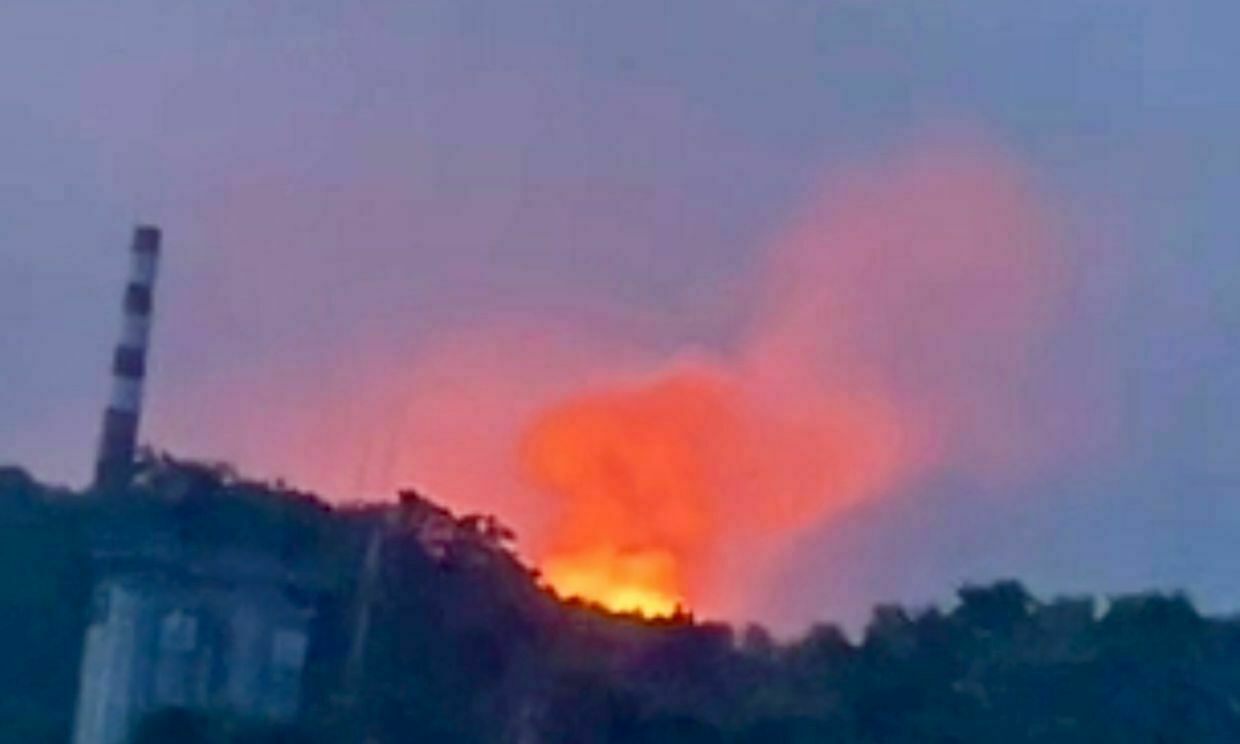-
Zelensky holds first meeting with Romania's new president Dan
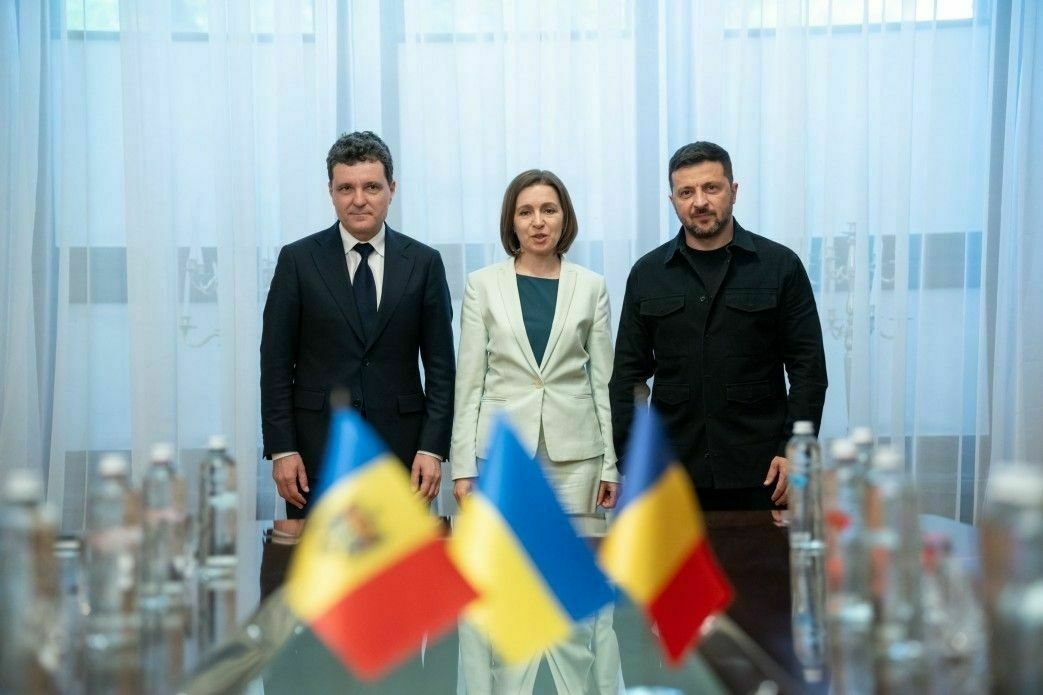
President Volodymyr Zelensky hosted a trilateral meeting with Moldovan President Maia Sandu and newly elected Romanian President Nicusor Dan, the first such meeting since Dan’s inauguration last month, Ukraine’s Presidential Office announced on June 11.
The talks focused on strengthening coordination between the countries amid rising threats from Russia’s ongoing war and hybrid operations across the Black Sea region, according to a statement.
The meeting took place on the sidelines of the Ukraine-Southeastern Europe summit held in the Black Sea port city of Odesa.
Ukraine proposed the appointment of foreign ministry-level coordinators to maintain permanent contact among the three countries.
The leaders discussed regional and cybersecurity, defense cooperation, European integration, sanctions against Russia, and support for Moldova, whose stability was described as vital for the broader region.
They also addressed joint infrastructure projects, including the construction of a cross-border highway and improvements to rail connections between Ukraine, Moldova, and Romania.
Special attention was given to defending against Russian hybrid threats and cyberattacks, which Ukraine says have intensified across Black Sea states.
Romania’s new president, Nicusor Dan, took office on May 26 after winning the May 18 presidential election against a far-right, anti-Ukraine opponent, George Simion. His victory is widely seen as a boost for Ukraine-Romania relations and for continued support of Kyiv’s pro-European path.
Zelensky emphasized that Ukraine and Moldova must remain united on their path toward EU membership, warning against any attempts to divide the countries during negotiations.
Both countries were granted EU membership candidate status in 2022 and launched the accession talks two years later.
Romania’s new president faces daunting challenges after surprise victory over far-right upstartThere was a wave of euphoria and relief across Europe following the election of pro-European liberal Nicusor Dan as Romania’s new president. “For Ukraine — as a neighbour and friend — it is important to have Romania as a reliable partner. And we are confident we will,” said President Volodymyr ZelenskyThe Kyiv IndependentPaula Erizanu
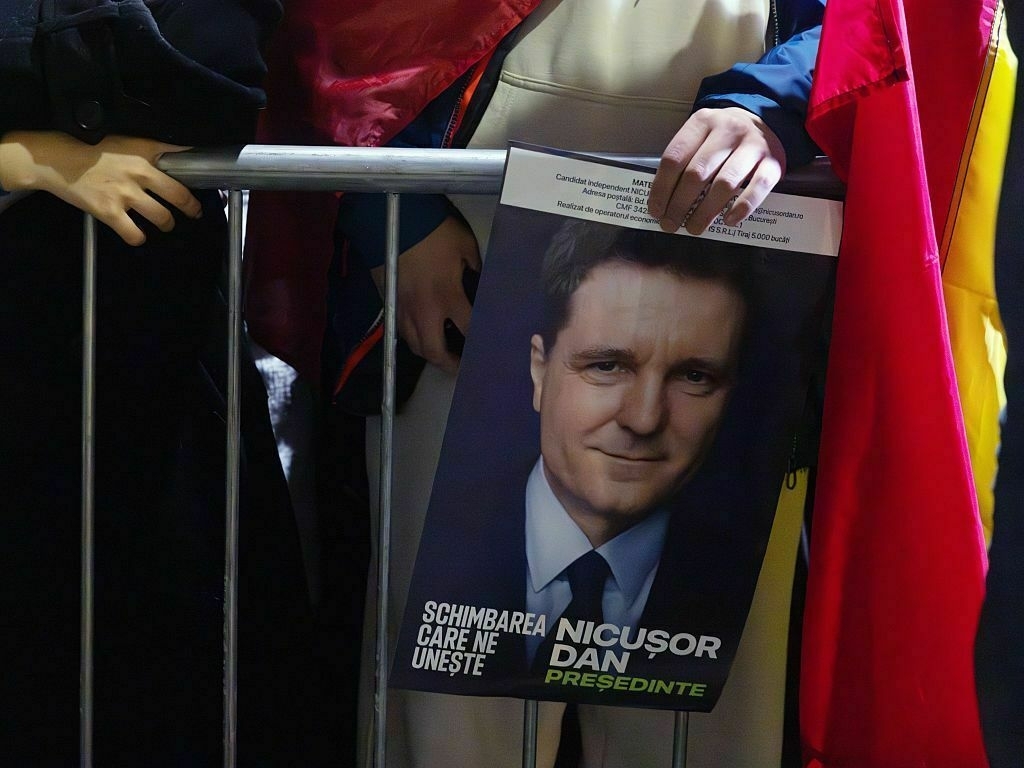
-
Rubio congratulates Russian people on Russia Day
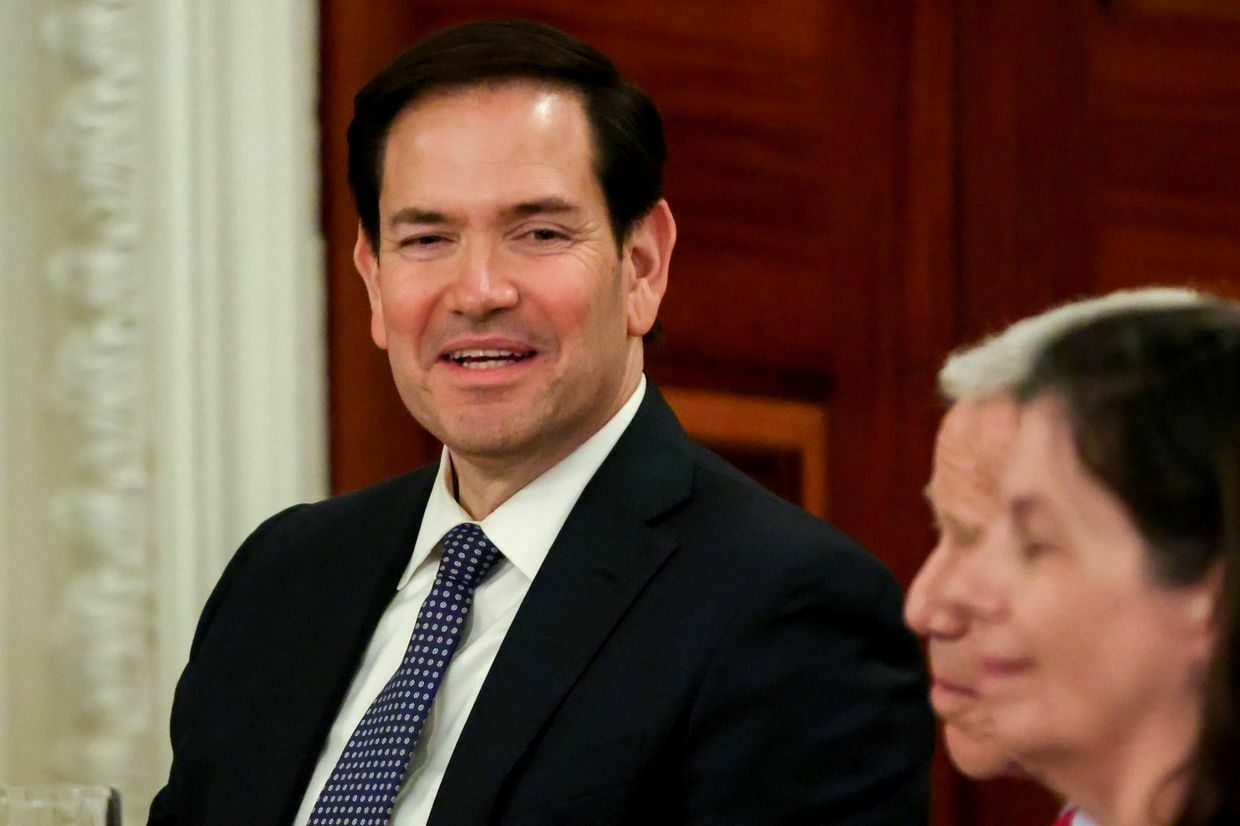
U.S. Secretary of State Marco Rubio congratulated the Russian people on June 12, Russia’s National Day, and expressed a desire for “constructive engagement” to bring peace to Ukraine.
“On behalf of the American people, I want to congratulate the Russian people on Russia Day,” Rubio said in a statement published on the State Department’s website.
“The United States remains committed to supporting the Russian people as they continue to build on their aspirations for a brighter future."
After taking office in January, the new U.S. administration took a sharp break from ex-President Joe Biden’s policy on Ukraine and Russia.
U.S. President Donald Trump’s team has sought to broker a peace deal between Kyiv and Moscow while being reluctant to commit additional funds or military aid to the besieged country.
“It is our hope that peace will foster more mutually beneficial relations between our countries,” Rubio said.
Washington has also signaled an intent to restore ties with Moscow, with both sides discussing venues for possible economic cooperation.
While the Biden administration imposed massive sanctions on Russia and sought to isolate Russian President Vladimir Putin on the international stage, Trump has often boasted about his close ties with the Russian leader and refused to impose additional economic restrictions.
Russia Day, also known as the Day of Adoption of the Declaration of State Sovereignty of the Russian Soviet Federative Socialist Republic, has been celebrated annually on June 12 since 1992.
The day commemorates the declaration of Russia’s state sovereignty from the Soviet Union, marking the start of a constitutional reform that eventually led to the breakdown of the USSR.
Putin’s suspected daughter found working in anti-war galleries in ParisNastya Rodionova, a Russian writer and artist who has been based in Paris since 2022, had only met gallery manager Luiza Rozova in passing at events before she learned who the 22-year-old’s parents were. Described by a number of people as a “very nice and well-mannered girl,” Rozova isThe Kyiv IndependentKate Tsurkan
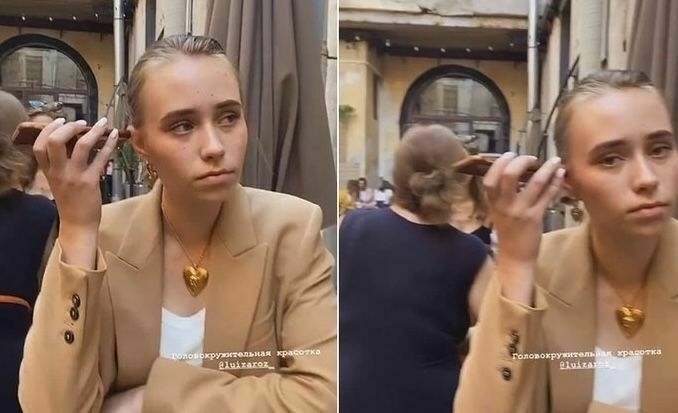
-
General Staff: Russia has lost 1,000,340 troops in Ukraine since Feb. 24, 2022
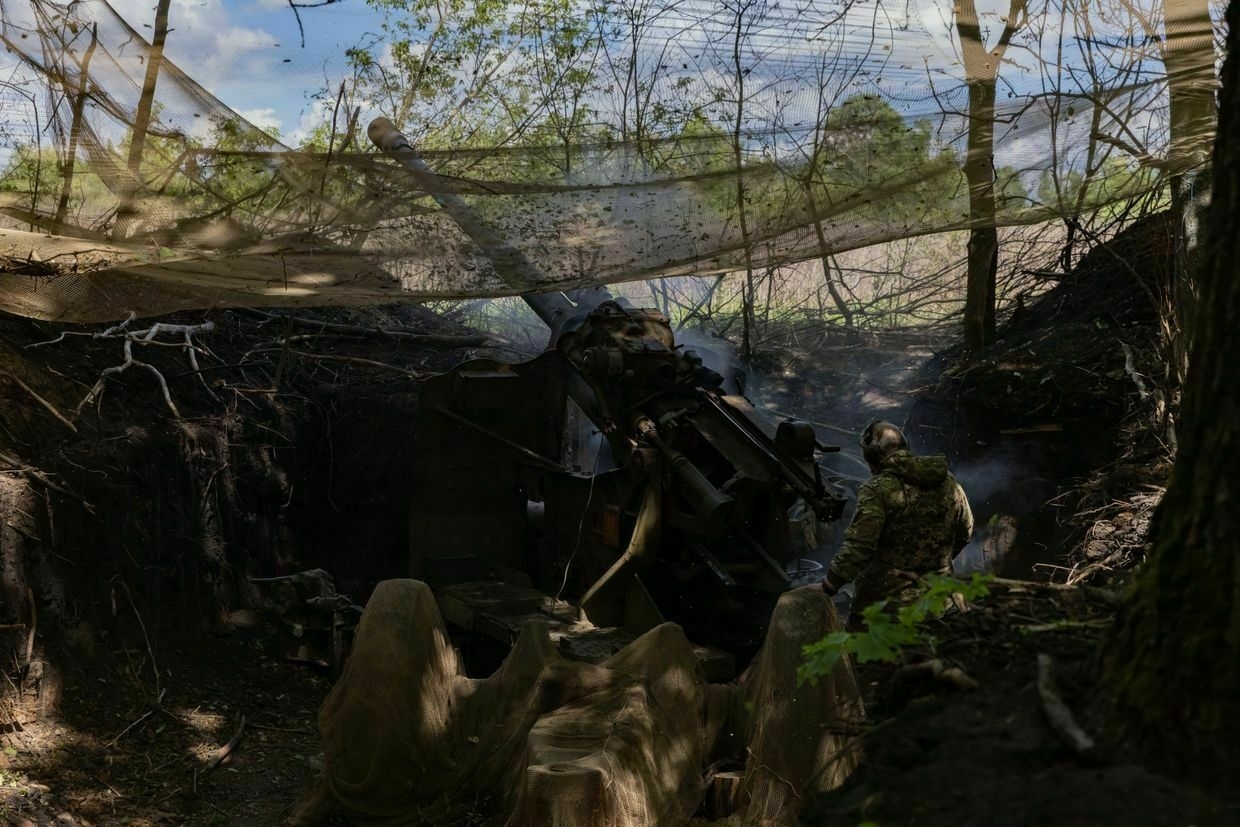
Russia has lost 1,000,340 troops in Ukraine since the beginning of its full-scale invasion on Feb. 24, 2022, the General Staff of Ukraine’s Armed Forces reported on June 12.
The number includes 1,140 casualties that Russian forces suffered just over the past day. It marks the first time since the outbreak of the full-scale war that Russia’s reported casualties crossed 1 million.
According to the report, Russia has also lost 10,933 tanks, 22,786 armored fighting vehicles, 51,579 vehicles and fuel tanks, 29,063 artillery systems, 1,413 multiple launch rocket systems, 1,184 air defense systems, 416 airplanes, 337 helicopters, 40,435 drones, 3,337 cruise missiles, 28 ships and boats, and one submarine.
Ukraine bracing for ‘painful’ reduction in US military aid after Hegseth announces cutsEditor’s note: For security reasons, the real names of the soldiers mentioned in this story have not been used. A reduction in U.S. military aid to Ukraine would be “painful” and could have potentially “dire consequences” for the global order, Ukrainian lawmakers and soldiers have told the Kyiv Independent.The Kyiv IndependentKateryna Hodunova
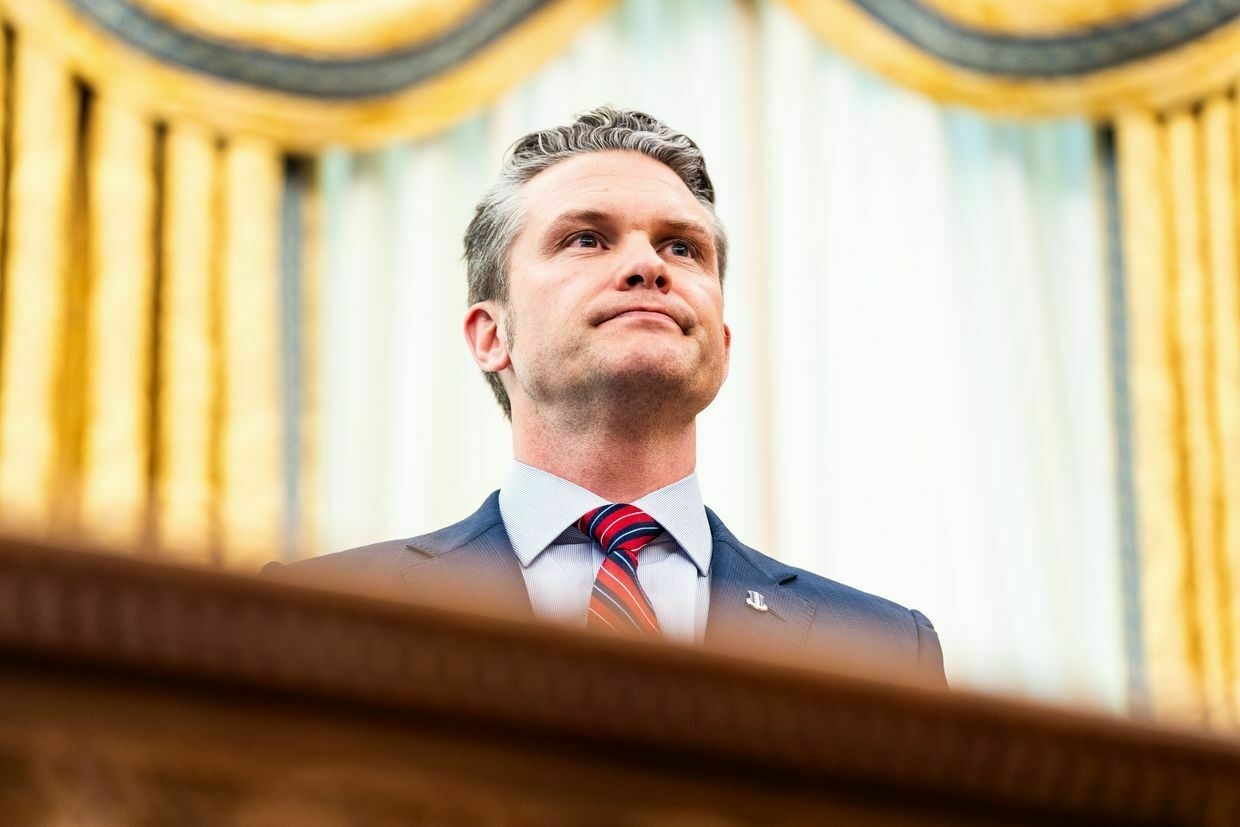
-
Partisan group destroys Russian military truck in occupied Ukraine, allegedly killing soldiers, Atesh claims
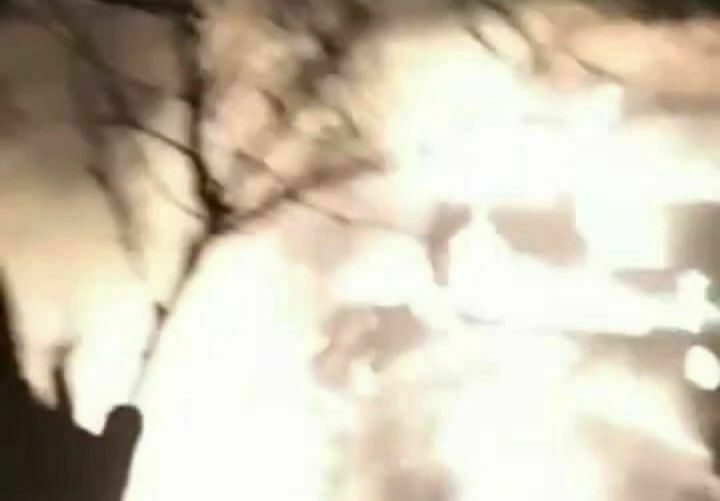
A Russian Ural military truck was destroyed, allegedly killing “several occupiers” near occupied Melitopol overnight on June 12, the pro-Ukrainian Atesh partisan group claimed.
"(O)ur fighters set fire to an army Ural truck, and several occupiers on duty now remain in the fields of Zaporizhzhia forever," the Atesh group said in a post to Telegram.
On June 10, the Atesh partisan group claimed they destroyed a vehicle used by drone operators in the Russian 64th Separate Motorized Rifle Brigade in occupied Melitopol.
The group says the June 12 attack will mark the start of Russia’s annual national holiday.
“A gift for Russia Day: Atesh agents carried out sabotage in the Melitopol region… Atesh agents conveyed ‘congratulations’ to the occupiers: one of our fighters set fire to an army Ural truck,” the group said.
The Kyiv Independent could not verify the group’s claims.
The Atesh partisan group regularly conducts sabotage attacks in Russia and Ukraine’s Russian-occupied territories.
America’s weak strongmanOver the past two months, financial investors have hit upon a new trading strategy, based on a simple rule: TACO — Trump Always Chickens Out. America’s president threatens to slap massive import tariffs on friends and foes alike, or to remove the Federal Reserve chair, only to back down whenThe Kyiv IndependentTimothy Snyder
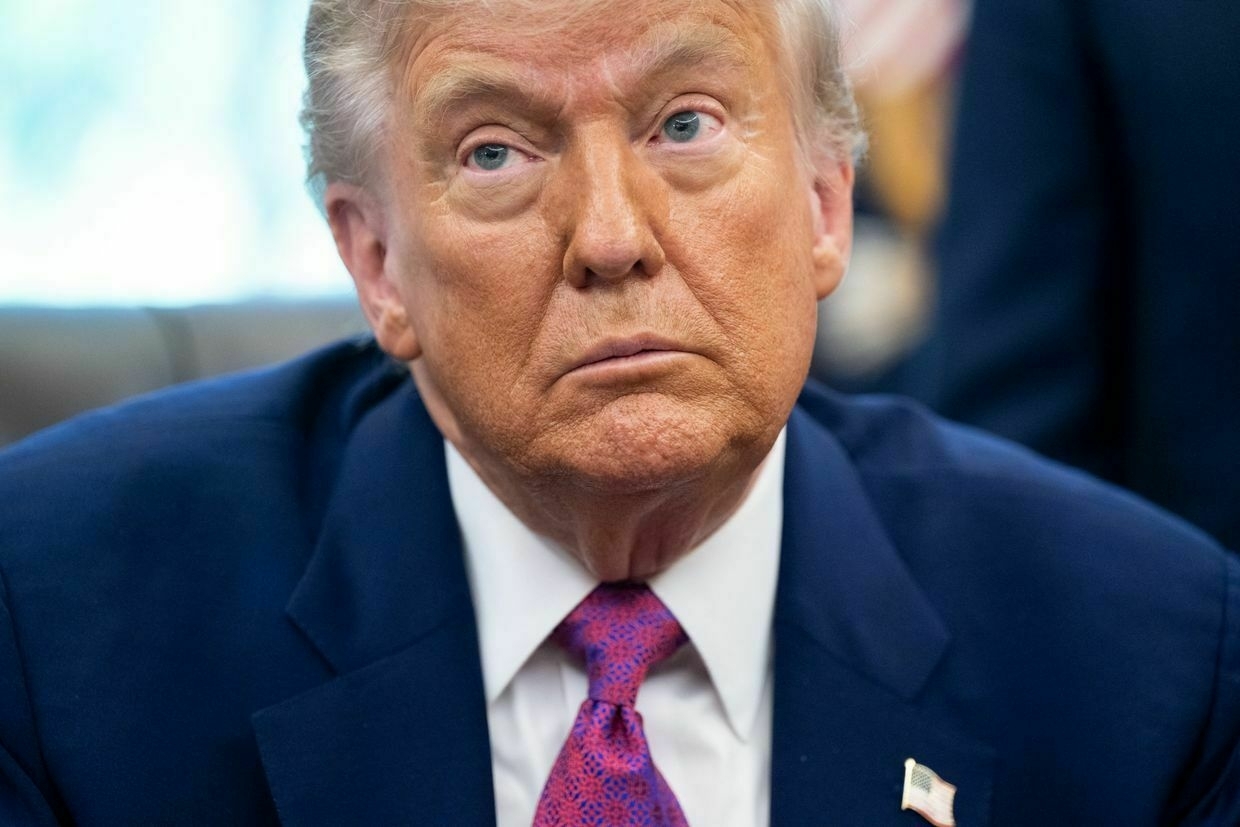
-
EU could impose Russian oil price cap without US support, Kallas says
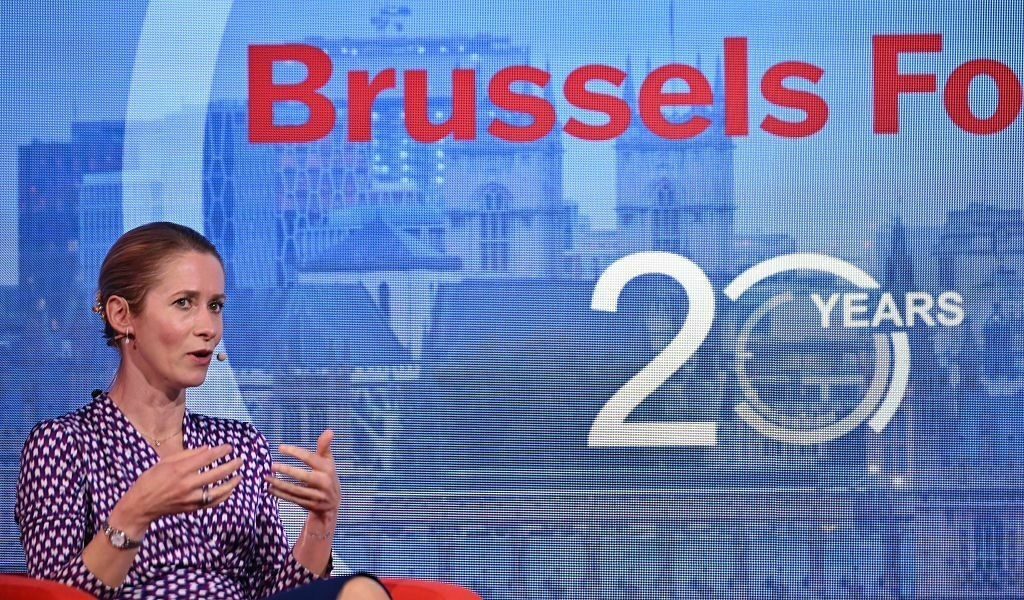
The European Union can impose an additional price cap on Russian oil without U.S. support, EU High Representative Kaja Kallas said at the Brussels Forum on June 11.
“If you think about the oil going through the channels, it’s mostly Europe, it’s via the Baltic Sea, it’s via the Black Sea. So even if the Americans are not on board, we can still do it and have an impact,” Kallas said.
The EU’s 17th package of sanctions against Russia came into effect on May 20. The bloc is already working on its next wave of sanctions.
The 18th EU sanctions package will include additional restrictions on energy, banking, oil, and other areas, European Commission President Ursula von der Leyen announced on June 10.
“What the intelligence tells is that, now the sanctions will (harder hit) the supply chains of Russia needed to really fund this war,” Kallas said.
“Of course, it is important the United States… is together with us, and we have been operating together for quite some time,” she said.
Kallas noted the Group of Seven (G7) oil price cap was previously agreed upon to be 5% below the market price.
“It is important, of course, what we do together, but it is also equally important for us what we do alone, because we alone are also a player,” Kallas said.
Kallas noted the EU is still an ally to the U.S., but recognized the dynamic between the two powers is changing.
“We still value the relationship… I think with the Americans we are not growing apart, but growing up in our relationships,” Kallas said.
The upcoming G7 summit will take place in Alberta, Canada. A wide range of topics, including Russia’s war against Ukraine, are expected to be discussed at the annual event.
President Volodymyr Zelensky previously confirmed he would be attending the G7 summit after receiving an invitation from Canadian Prime Minister Mark Carney.
‘Ukrainians have been stripped of illusion of control’ — Filmmaker Kateryna Gornostai on Russia’s war, cinema and reclaiming the narrativeWhen Russia launched its full-scale invasion of Ukraine, film director Kateryna Gornostai found herself questioning whether she would continue working. “I had this feeling that life — at least professionally — had come to an end,” she says. “Who needed directors or screenwriters, then? At most, volunteers were needed, but hardly anyoneThe Kyiv IndependentKateryna Denisova
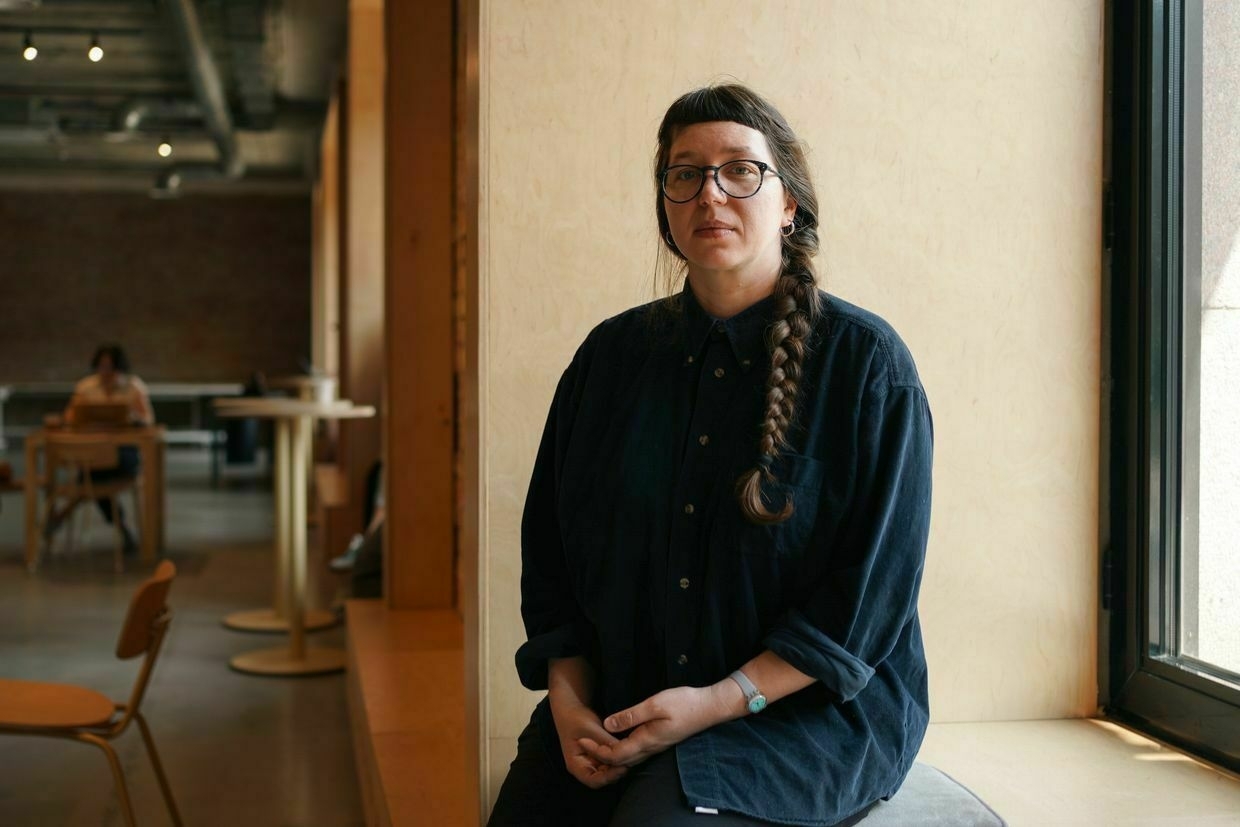
-
12 injured in Russian drone attack on Kharkiv, day after fatal drone bombardment
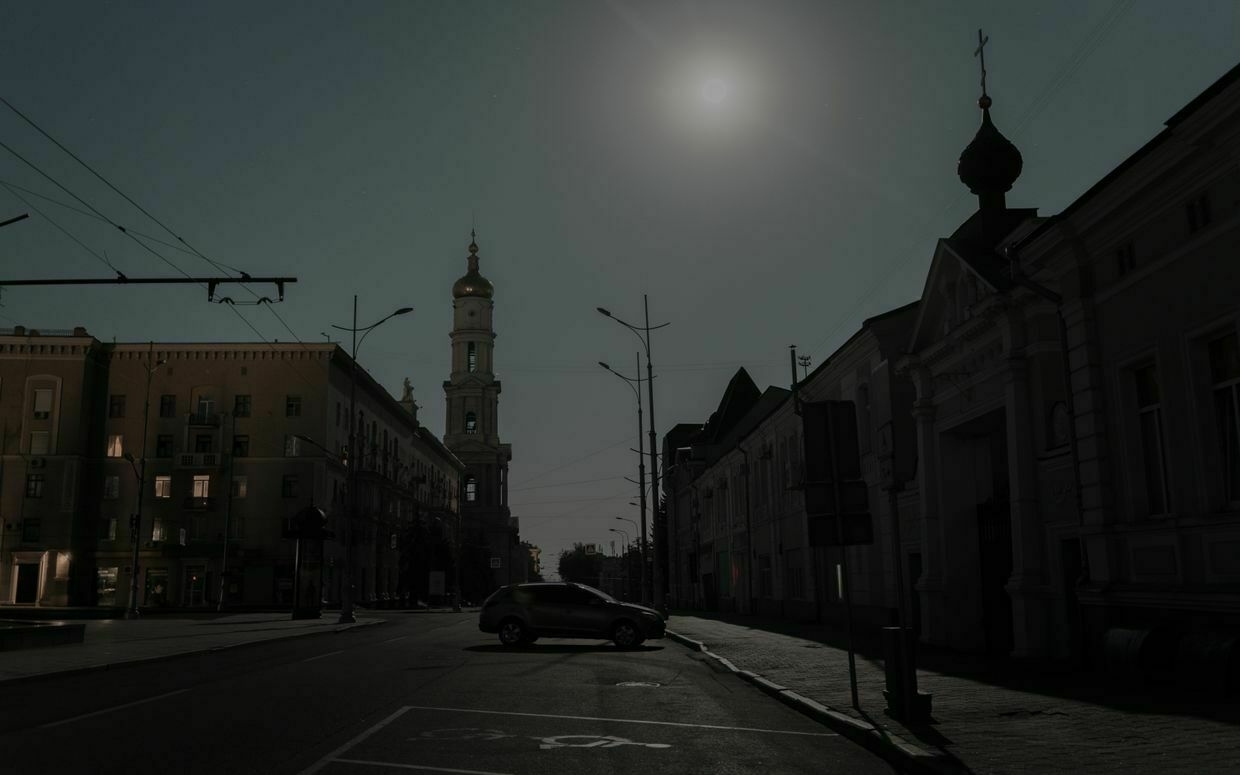
Editor’s note: This is a developing story and is being updated.
Twelve are injured, including 4 children, as a result of a Russian drone attack on Kharkiv overnight on June 12.
Russia carried out 11 strikes on the city, a 12th drone strike did not detonate, Kharkiv Mayor Ihor Terekhov said in a post to Telegram.
“Residential areas, educational institutions, kindergartens, and infrastructure were hit by shelling. Dozens of cars were damaged, windows in schools and houses were broken,” he said.
Just a day prior, on June 11, a Russian mass drone attack on Kharkiv killed three people and injured at least 64 others, including nine children.
“An unexploded UAV was discovered on the roof of a warehouse,” regional Governor Oleh Syniehubov said.
Several fires broke out throughout the city as a result of the Russian drone attack.
“Civilian cars caught fire after a (drone) hit a residential high-rise building. The facade of the high-rise building was also damaged,” Syniehubov reported.
The grounds of an educational institution were hit in the Shevchenkivskyi district, causing a fire to break out, Syniehubov said.
Russia regularly strikes civilian infrastructure as it continues to wage its war against Ukraine.
On June 10, Russia conducted drone and missile attacks on Kyiv and Odesa. Three were killed and 12 were injured.
Ukraine bracing for ‘painful’ reduction in US military aid after Hegseth announces cutsEditor’s note: For security reasons, the real names of the soldiers mentioned in this story have not been used. A reduction in U.S. military aid to Ukraine would be “painful” and could have potentially “dire consequences” for the global order, Ukrainian lawmakers and soldiers have told the Kyiv Independent.The Kyiv IndependentKateryna Hodunova
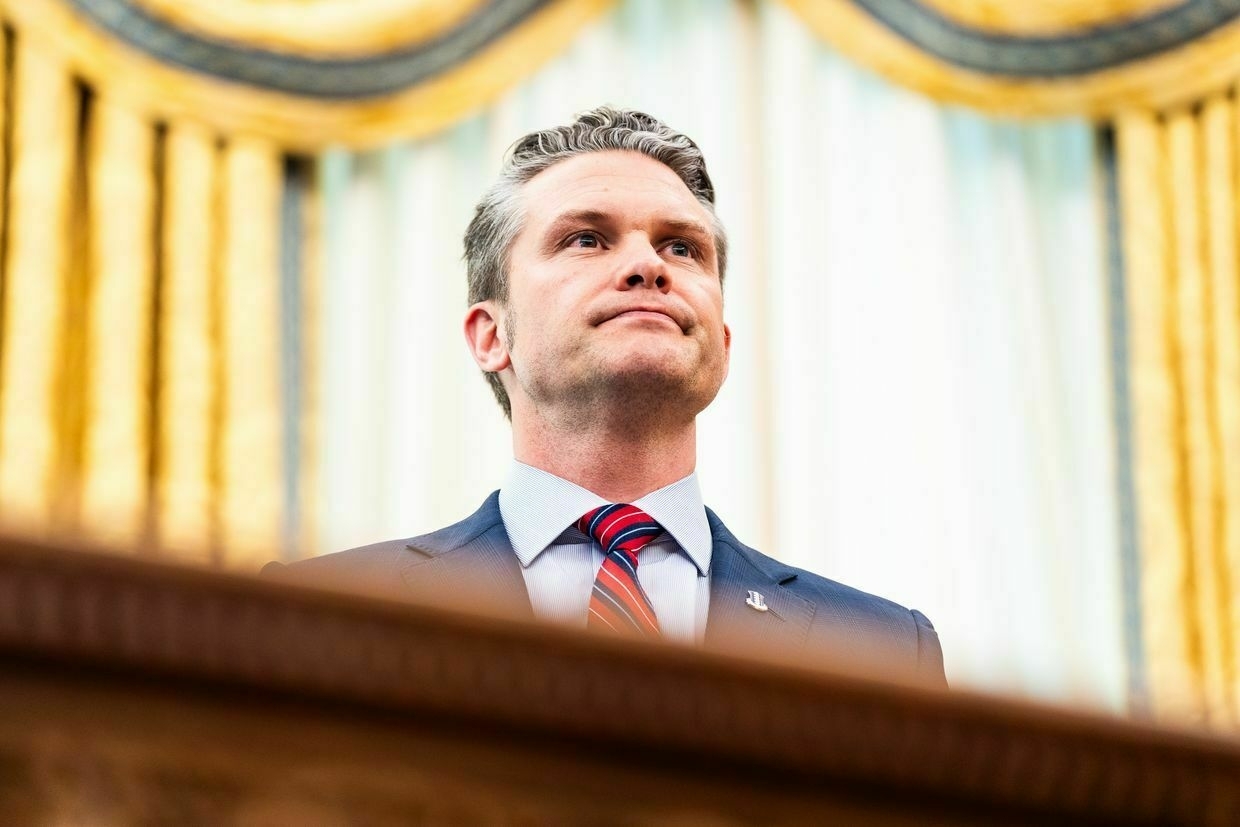
-
Russia boasts world's top nuclear force, must improve ground forces, Putin claims
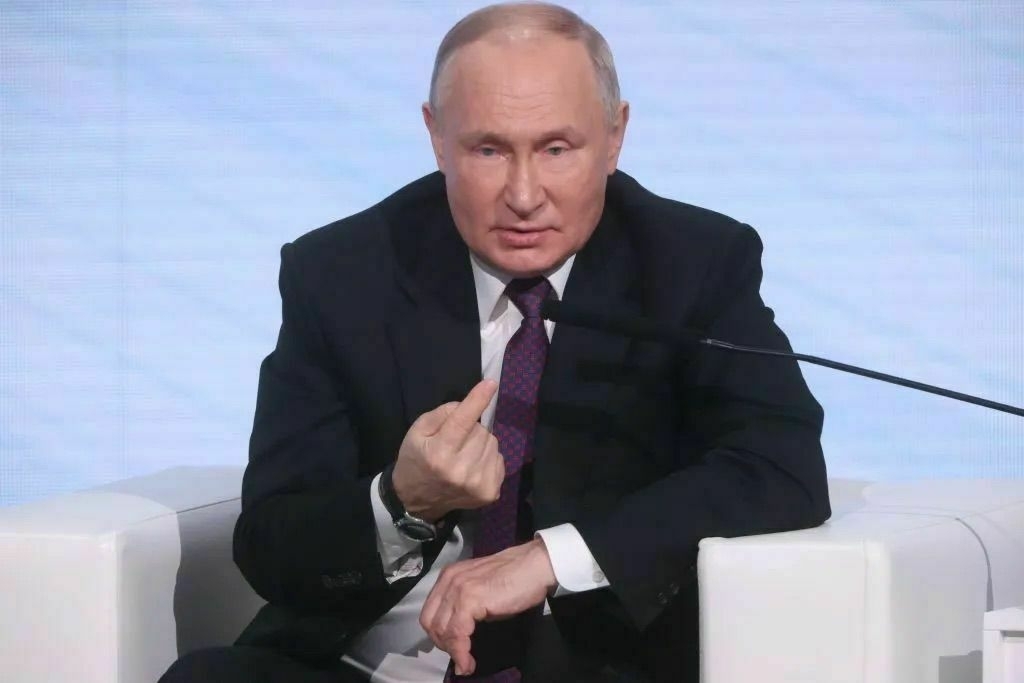
Russian President Vladimir Putin claimed that Moscow possesses the world’s most advanced nuclear systems but must significantly strengthen its ground forces, Russian state media reported on June 11.
As Russia continues its war against Ukraine, Moscow has increased investment in its military. Russian defense spending has reached its highest level since the Cold War at 6.3% of Gross Domestic Product (GDP).
Putin claimed that Russia’s nuclear triad has the highest share of new equipment among nuclear powers.
“Currently, the share of modern weapons and equipment in the strategic nuclear forces is already 95%. This is a good indicator, in fact, it is the highest of all nuclear powers in the world,” Russian state media reported Putin saying.
Putin then called for Russia’s ground forces to be improved as quickly as possible.
“The dominant force in conducting modern military operations of any scale and intensity remains the ground forces. And it is important to increase their combat capabilities in the shortest possible time,” he said.
Russia began its full-scale invasion of Ukraine in February 2022. Russia first began its armed aggression against Ukraine in 2014, when its proxies occupied territory in eastern Ukraine and Russia annexed Crimea.
Russia regularly strikes civilian infrastructure in its ongoing war against Ukraine. On June 11, a Russian drone attack on Kharkiv killed at least three people and injured 64 others.
Putin’s suspected daughter found working in anti-war galleries in ParisNastya Rodionova, a Russian writer and artist who has been based in Paris since 2022, had only met gallery manager Luiza Rozova in passing at events before she learned who the 22-year-old’s parents were. Described by a number of people as a “very nice and well-mannered girl,” Rozova isThe Kyiv IndependentKate Tsurkan
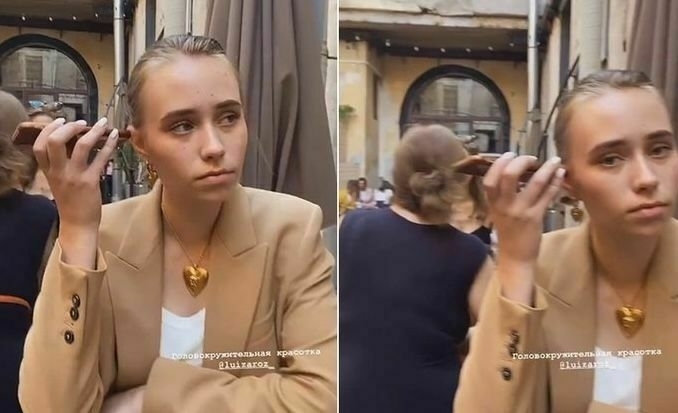
-
Republicans press Pentagon chief over Trump’s plan to end Russia's war against Ukraine, Politico reports

At a Senate budget hearing on June 11, Republican senators fiercely criticized U.S. Defense Secretary Pete Hegseth over the Trump administration’s effort to end the Ukraine war through negotiations involving Russia.
The session revealed deep divisions within the GOP on U.S. foreign policy, as lawmakers clashed over the administration’s strategic direction, Politico reports. Leading the pushback was Sen. Mitch McConnell of Kentucky, one of three Republicans who voted against Hegseth’s confirmation, who warned, “America’s reputation is on the line.”
McConnell, now chair of the panel overseeing defense funding, issued some of his strongest public criticism yet, questioning whether the United States would continue defending democratic allies against authoritarian threats.
He contrasted his stance — rooted in a Reagan-era commitment to global leadership — with Hegseth’s “America First” approach favored by many Trump supporters. “We don’t want a headline at the end of this conflict that says Russia wins and America loses,” McConnell said.
When asked who the aggressor in the three-year-old war is, Hegseth responded, “Russia is the aggressor.” But he avoided directly stating which side the U.S. wants to see win, instead emphasizing that President Trump is committed to achieving peace. Hegseth shifted blame to the Biden and Obama administrations, arguing that slow responses during their terms allowed Putin to seize Crimea and invade Ukraine. “Vladimir Putin knows that President Trump is strong,” he said, suggesting a negotiated peace would bolster America’s global position.
Sen. Lindsey Graham, a prominent Trump ally, questioned whether Putin would stop his territorial ambitions if he gained ground in Ukraine. Joint Chiefs Chair Gen. Dan Caine said he did not believe Putin would stop. Hegseth, however, responded, “It remains to be seen.” Graham rebuked that answer, saying, “This is the ‘30s all over. It doesn’t remain to be seen."
Democrats also raised concerns. Sen. Chris Coons of Delaware criticized the administration for omitting Ukraine aid in its 2026 budget request and warned against compromising too much for the sake of peace. “We cannot abandon Ukraine,” he said.
Hegseth defended the administration’s strategy, calling a negotiated settlement a show of strength. “The alternative of endless war that is largely funded by the United States and fought by Ukrainians… does not make sense strategically,” he said.
America’s weak strongmanOver the past two months, financial investors have hit upon a new trading strategy, based on a simple rule: TACO — Trump Always Chickens Out. America’s president threatens to slap massive import tariffs on friends and foes alike, or to remove the Federal Reserve chair, only to back down whenThe Kyiv IndependentTimothy Snyder
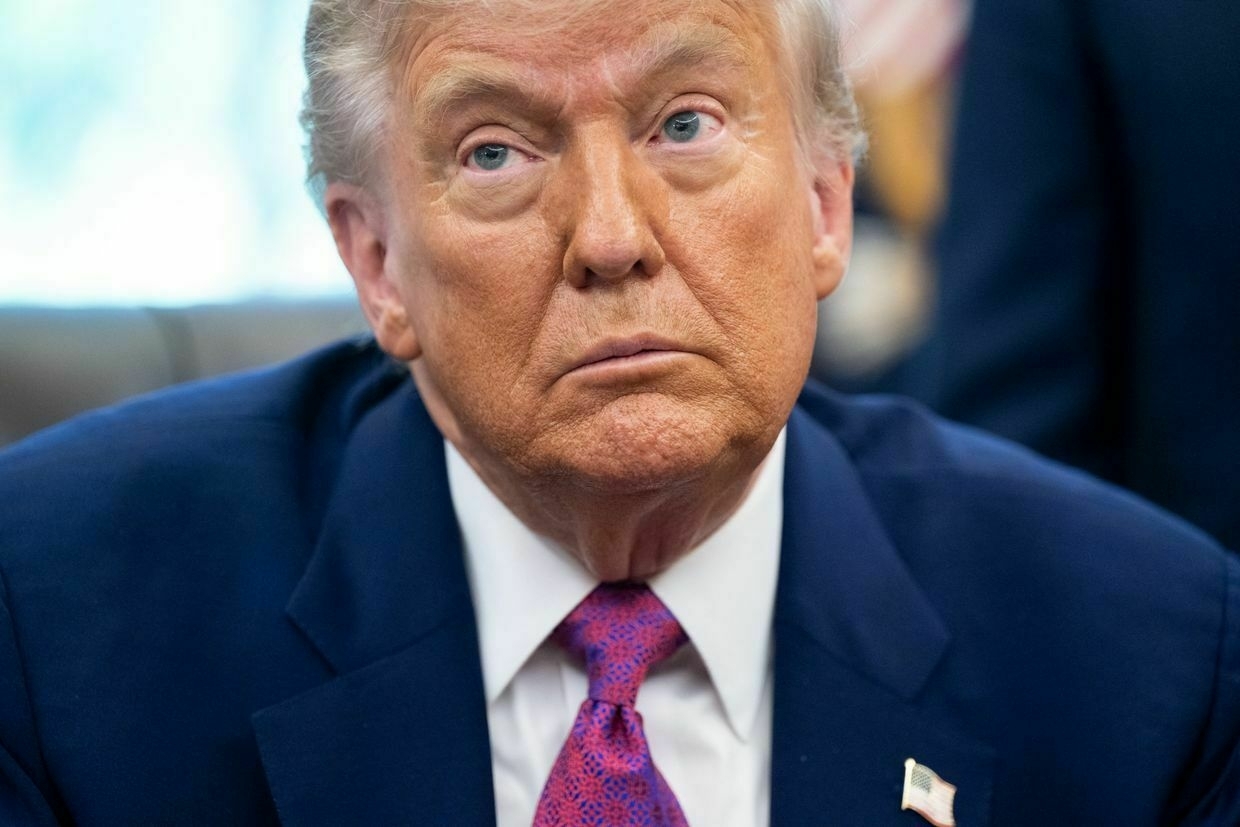
-
We must keep supporting! Kaptur urges the US not to turn away from Ukraine #shorts
-
Drapatyi ends tenure as Ground Forces chief, says he leaves with 'clear conscience'
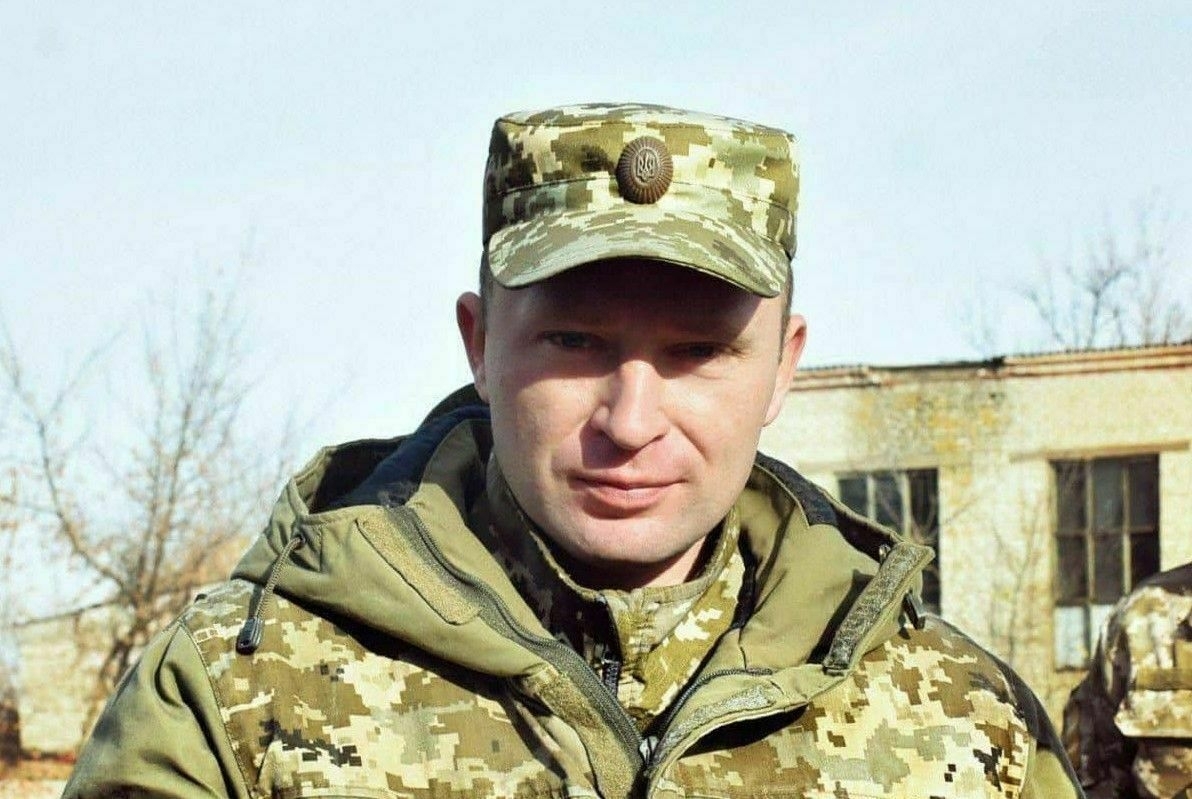
Mykhailo Drapatyi said on June 11 that he had concluded his six-month tenure as commander of Ukraine’s Ground Forces, summarizing his accomplishments and stating that he is leaving with “a clear conscience."
Drapatyi submitted his resignation on June 1, following a deadly Russian missile strike that killed at least 12 Ukrainian soldiers at a training camp in Dnipropetrovsk Oblast, saying the victims were young recruits who “should have learned, lived, and fought — not died."
President Volodymyr Zelensky appointed him as commander of the Joint Forces on June 3, two days after the incident. The Ground Forces said the same day that an investigation was underway and pledged accountability if negligence or misconduct is found.
In his statement, Drapatyi described the state of the Ground Forces at the time of his appointment on Nov. 29, 2024 as mired in “managerial stagnation,” defined by fear, lack of initiative, and detachment from frontline units.
“Systemic abuse, personnel decisions based on connections, low internal organization,” he wrote. “The command is gradually shifting from a culture of fear to a culture of responsibility."
Drapatyi said he had replaced over half of the Ground Forces' leadership in key functions and had begun reforms aimed at decentralization, accountability, and professionalism.
Under his leadership, the military launched a revamp of recruitment centers, aiming to eliminate corruption and increase transparency in mobilization.
Drapatyi also oversaw a partial overhaul of the army’s training and staffing systems. New leadership was introduced in the drone, cyber, and electronic warfare units amid a wave of broader reforms.
“Decisions are made not on the basis of status or loyalty, but on the basis of analysis, results, and respect for subordinates,” Drapatyi said. “Grassroots initiatives ceased to be a threat and began to become a resource.”
Zelensky said on June 3 that Drapatyi’s new role would focus “exclusively on combat issues."
Ukraine’s SBU releases fresh video of Operation Spiderweb, teases ‘new surprises’“The SBU is hitting and will hit (Russia) where it considers itself unreachable!” SBU chief Vasyl Maliuk said. “We are working on new surprises, no less painful than the Operation Spiderweb.”The Kyiv IndependentMartin Fornusek
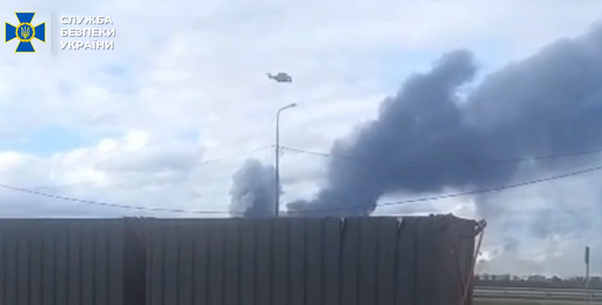
-
No chance left for Russians! Masterful operations by Ukrainian Forces #shorts
-
Paris art scene’s unforeseen dilemma: Can you employ Putin’s suspected daughter?
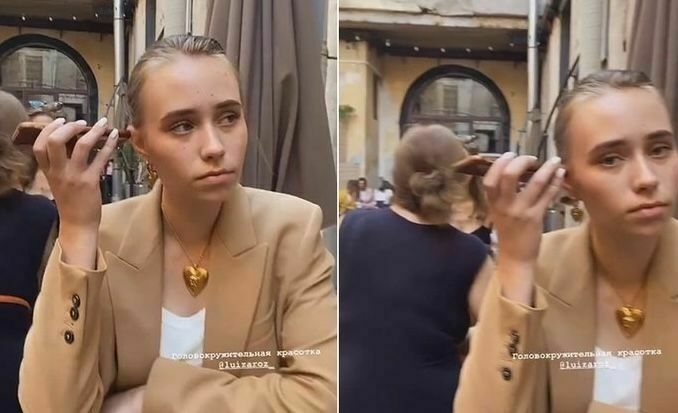
Nastya Rodionova, a Russian writer and artist who has been based in Paris since 2022, had only met gallery manager Luiza Rozova in passing at events before she learned who the 22-year-old’s parents were.Described by a number of people as a “very nice and well-mannered girl,” Rozova is the daughter of a Russian woman named Svetlana Krivonogikh — and, according to investigative journalists, Russian President Vladimir Putin.
After learning about Rozova’s family background, Rodionova took to social media on June 4 to share it, highlighting the fact that the galleries where Rozova works primarily showcase Russian and Ukrainian anti-war art.
The post quickly went viral — but the reactions were divided. Some members of the Russian emigre community argued Rozova had no control over who her parents are and it shouldn’t be held against her.
Others agreed it was ethically questionable that a family member of the Kremlin leader worked in anti-war art galleries as Russia was waging war against Ukraine, and praised the artist for revealing it.
“We are talking about artists (showcased in the galleries) who fled the regime,” Rodionova told the Kyiv Independent.
“Many of them are in danger. They shared all their personal information with the gallery staff without knowing who works there — it upset them very much (to learn about her).”
The Kyiv Independent reached out to Rozova for comment through her employer. He acknowledged that he had passed along the request for comment and “if she considers it possible to answer” she would do so.
As of publication, Rozova has not replied.
Uncanny resemblanceIn most of Rozova’s photos that were posted on social media or taken by media outlets for interviews, her face is deliberately cropped or turned away — a subtle yet telling choice, which some believe is due to her uncanny resemblance to the Russian leader.
In the few photos of Rozova where her face is fully visible, she does bear unmistakable resemblance to Putin.
“Listen, judging by (Putin’s) younger photos — probably, yes, I do look like him. But as it turns out, there are actually a lot of people who resemble Vladimir Vladimirovich,” she told GQ Russia in 2021. In the interview, Rozova wasn’t directly asked whether she was related to the Russian leader.
Rozova first attracted international attention in 2020, when the independent Russian investigative outlet Proekt published an expose detailing the substantial wealth of her mother, Svetlana Krivonogikh, who at the time possessed over $100 million in assets.
Proekt’s investigation revealed Krivonogikh’s longstanding ties to Putin and noted that her daughter Rozova “bears an uncanny resemblance” to the Russian leader, fueling the widespread speculation about her parentage.
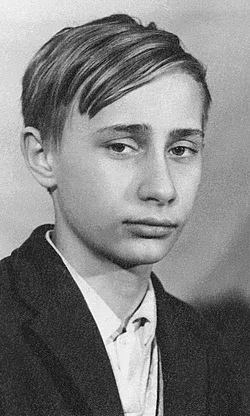

L: Russian President Vladimir Putin as a child, circa 1960s. (Wikimedia) R: A photo shows Luiza Rozova, who is widely alleged to be Russian President Vladimir Putin’s daughter. (X) In the rare instances that Rozova has granted media interviews since then, she has never outright acknowledged or denied that Putin is her father.
Dmitri Dolinski — director of the L Association, which oversees both Studio Albatros and the L Galerie where Rozova is employed — confirmed to Rodionova that Rozova’s mother is Krivonogikh, she said.
Krivonogikh was sanctioned by the U.K. in 2023 due to her stake in Bank Rossiya, which has, among other things, supported investments in Russian-occupied Crimea following the illegal annexation of 2014.
Why it mattersIn her original viral social media post, the Russian artist Rodionova stressed the importance of Studio Albatros and L Galerie as cultural spaces showcasing Russian and Ukrainian anti-war artists — and why that made the presence of the Kremlin leader’s alleged daughter there problematic.
“In the context of Russia’s ongoing war of aggression, people organizing any public events involving anti-war artists — and in some cases direct victims of the regime — must act with maximum transparency and sensitivity,” Rodionova wrote.
Rodionova previously exhibited her artwork with L Association but has chosen to no longer do so.
“We must know who we are working with and make informed decisions about whether we are okay with (exhibiting art there). My personal answer in this case is no.”
Given the Russian and Ukrainian artists’ outspoken anti-war positions, there is a potential risk associated with disclosing their personal information to L Association — particularly given the lack of clarity around Rozova’s ties to the Russian regime.
One artist who collaborated with the gallery had even welcomed Rozova into their home without knowing her family connections, Rodionova added.
When Rodionova first asked about Rozova’s background, Dolinski reportedly told her that he does not look into his employees’ families.
At the same time, Rodionova noted, it appears he hired Rozova while knowing who her mother was and the fact that her mother was already subject to U.K. sanctions.
Amid the ongoing controversy, the L Association appears to be standing behind Rozova.
“We regret that some voices have called for forms of stigmatization or ‘collective punishment,’ and we remind everyone that no one should be judged by their origins, birthplace, heritage, or any other criteria beyond their control. This is a red line we will not cross,” the organization wrote on Facebook on June 9, although they didn’t mention Rozova by name.
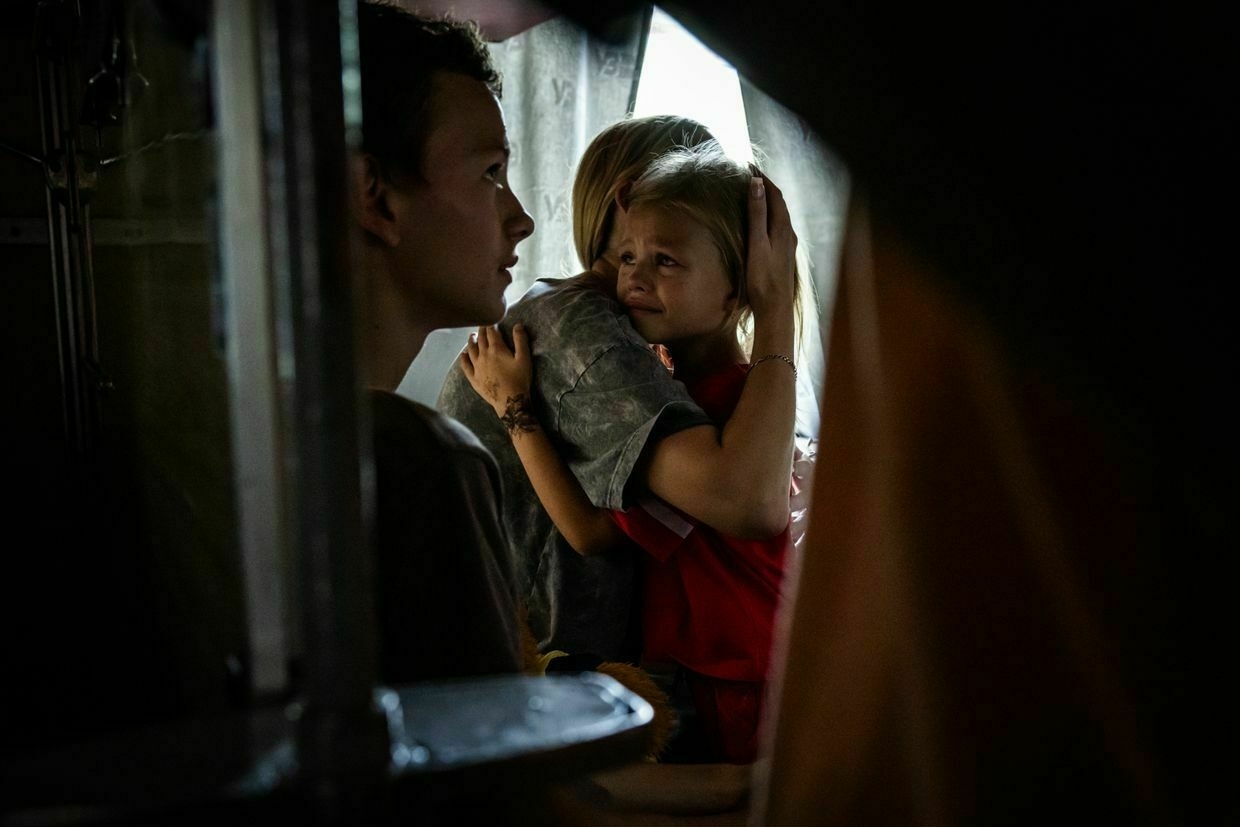
Dasha, 6, cries as she hugs her mother before boarding an evacuation train in Pokrovsk, Donetsk Oblast, Ukraine, on Aug. 22, 2024. (Ed Ram / The Washington Post via Getty Images) 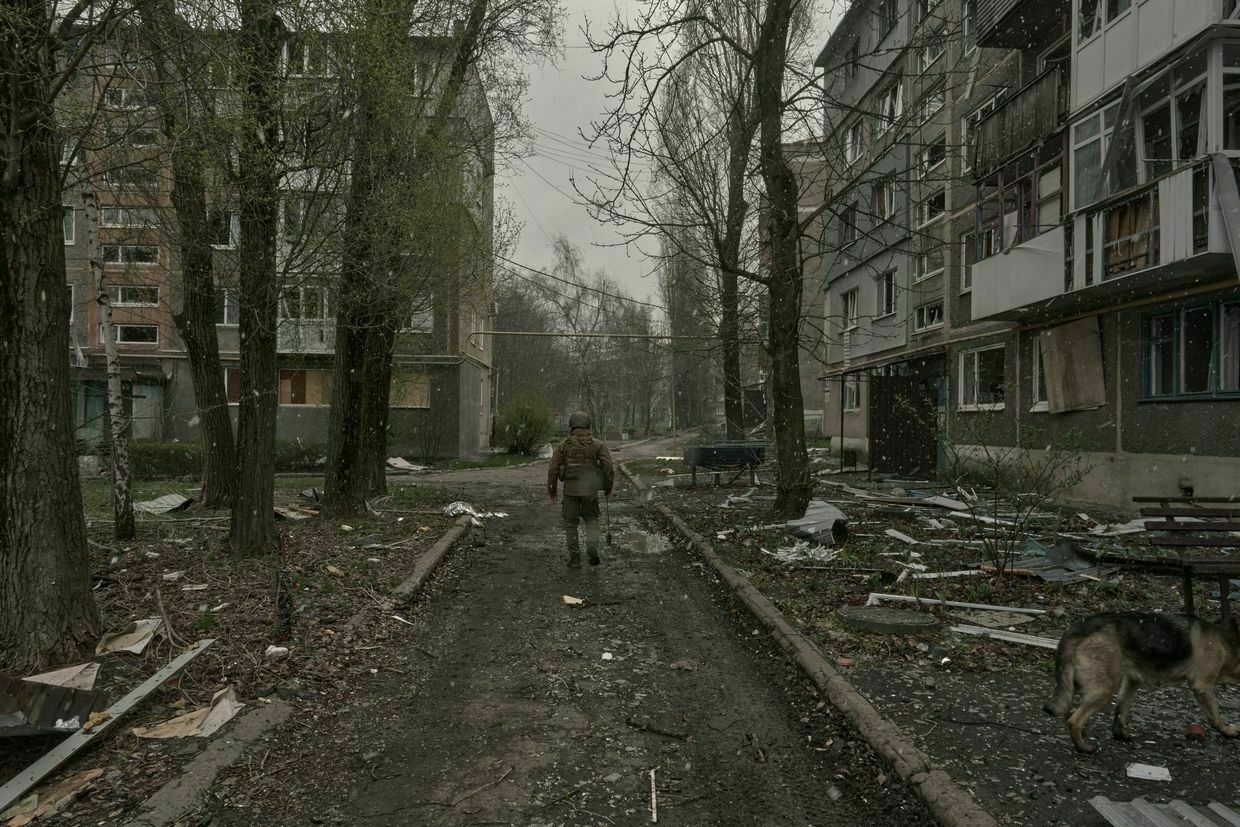
A soldier walks past destroyed residential buildings in Pokrovsk, Donetsk Oblast, Ukraine, on April 8, 2025. (Kostiantyn Liberov / Libkos / Getty Images) In response to Rodionova’s post, a number of Russian emigres argued in the comments that Rozova should not be held accountable for the crimes of her alleged father. They claimed she has made a public anti-war stance in social media — although her actual social media account is disputed — and pointed to her residence in Paris as evidence that she is unlikely part of Putin’s close inner circle.
The exact number of Putin’s children remains unconfirmed. It’s known that he has two daughters from his marriage to Lyudmila Putina, who he divorced in 2014. In 2024, the Russian investigative outlet Dossier Center reported that he also has two young sons with Alina Kabaeva, a former Olympic gymnast long rumored to be his partner. The two boys reportedly live in Putin’s residence on Lake Valdai in northwestern Russia.
Since coming forward with her revelation about Putin’s alleged daughter Rozova, Rodionova told the Kyiv Independent that she has dealt not only with public slander but also threats made against her.
“I want to believe that these people have expressed their personal opinion but lots of messages were suspiciously similar,” she said, suggesting that there was an organized campaign of retaliation.
Rodionova pushed back against those attacking her for raising questions about Rozova’s parentage, arguing that they were distorting the reasons behind her decision.
Regardless of Rozova’s personal politics or the extent to which she has or hasn’t benefited from the Russian regime, exiled artists like Rodionova argue that the ongoing dangers posed by Russia’s full-scale war require extra caution and transparency when it comes to who is welcomed into anti-war cultural spaces.
Controversial Russian literature prize sparks debate on separating culture from war crimesLaunched to promote Russian literature on the global stage during Russia’s full-scale invasion of Ukraine, the new Dar (“Gift”) literary prize is already mired in controversy — and not just for its troubling timing. After Ukrainian author Maria Galina declined the award for her wartime chronicle of Odesa, attention shiftedThe Kyiv IndependentKate Tsurkan
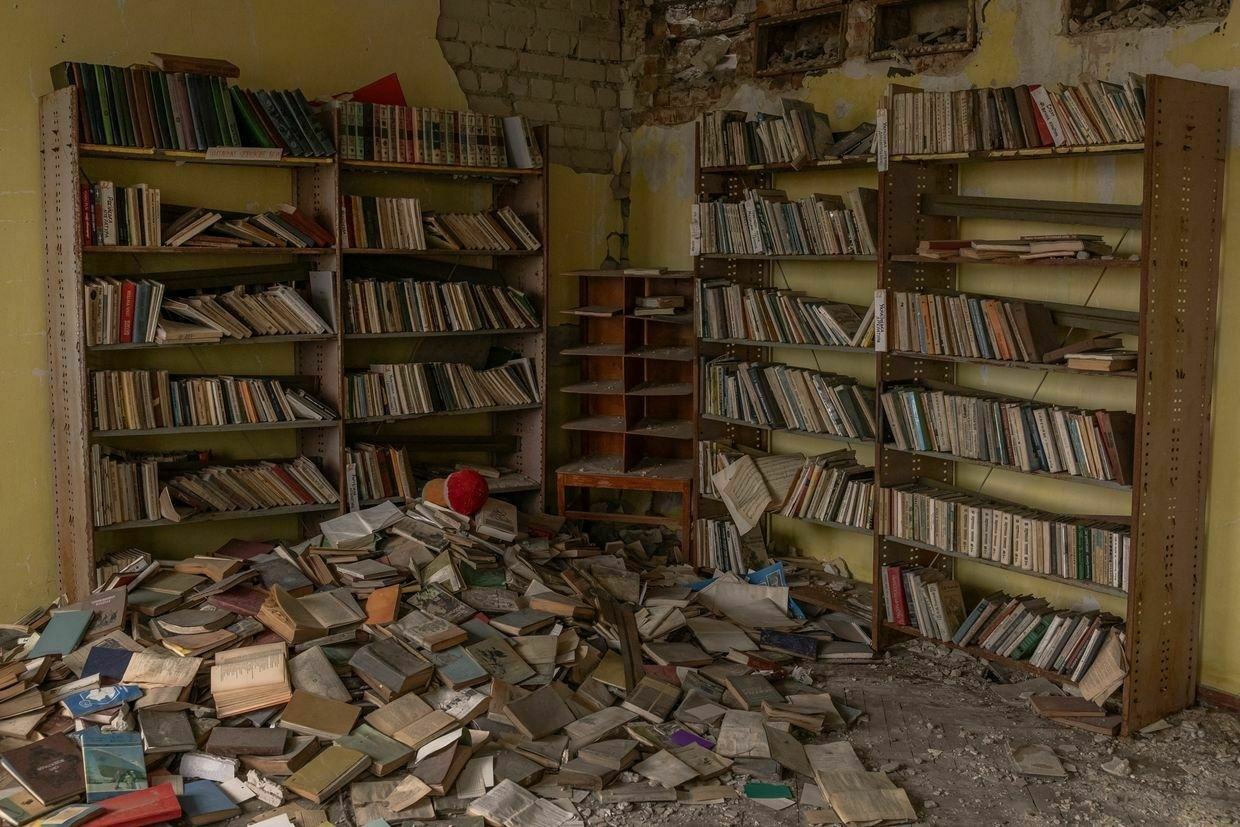
Note from the author:
Hi there, it’s Kate Tsurkan, thanks for reading this article. The story of Putin’s alleged daughter working in anti-war art galleries in Paris is one of those crazy stories that make you realize culture and politics are never that far removed from each other, especially when it comes to Russia’s war against Ukraine. I hope by reading this article you also reflected on questions of accountability, transparency, and trust during wartime. If you like reading this sort of material, please consider supporting us by becoming a paid member of the Kyiv Independent today.
-
Vucic offers to help rebuild Ukrainian cities, reaffirms support for Ukraine's territorial integrity
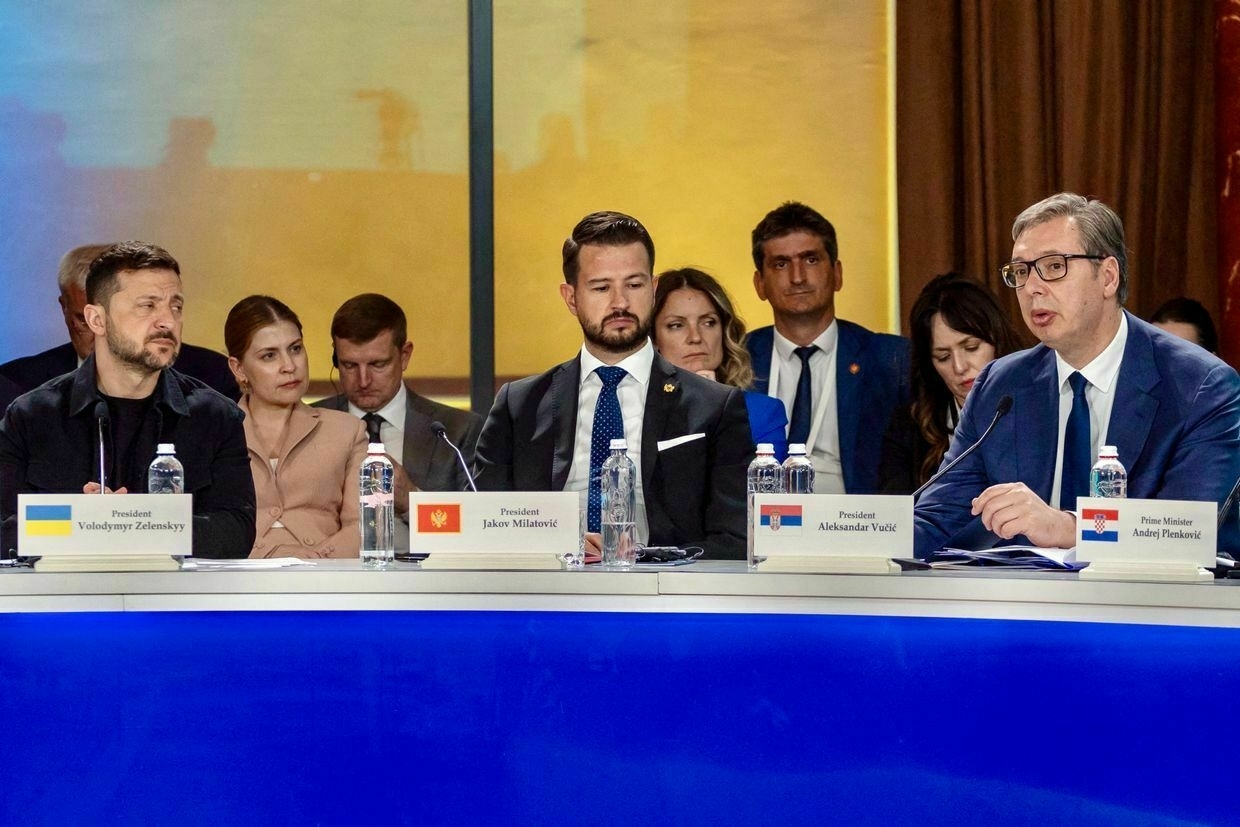
During his visit to Ukraine on June 11, Serbian President Aleksandar Vucic said his country is ready to help rebuild one or two Ukrainian cities or regions.
The one-day trip marked the Moscow-friendly Serbian leader’s first official visit to Ukraine and a significant moment in his efforts to maintain a neutral stance in Russia’s war against Ukraine while also advancing Serbia’s EU accession aspirations.
Speaking at the Ukraine–Southeast Europe Summit in Odesa, Vucic said Serbia wants to go beyond political declarations and provide practical assistance to Ukraine.
“I would like to take one or two cities or regions that we could rebuild. I think that would be very clear and noticeable to the Ukrainian people,” he said. “We are ready to listen to you and see how we can help you."
Vucic also reaffirmed Serbia’s commitment to international law and the UN Charter, saying that this includes supporting the territorial integrity of states — a message the president described as important for Kyiv.
“Ukraine can always count on Serbia’s humanitarian and political support for its territorial integrity,” he said. “We could be supportive in efforts to achieve a ceasefire."
Vucic was one of the few European leaders to attend Russia’s Victory Day celebrations in Moscow on May 9 — a move that drew criticism from EU officials.
Serbian president also told reporters that he did not sign the declaration of the Odesa summit, adding that by doing so, he “did not betray Russia."
Tensions between Belgrade and Moscow have risen in recent months after Russia’s intelligence services accused Serbian defense firms on May 29 of indirectly supplying weapons to Ukraine. Vucic has denied those claims.
Zelensky urges ‘stronger’ EU sanctions on Russia, lower oil price capPresident Volodymyr Zelensky said the upcoming 18th EU sanctions package “could be stronger,” especially in targeting Russian oil tankers and the financial sector.The Kyiv IndependentTim Zadorozhnyy
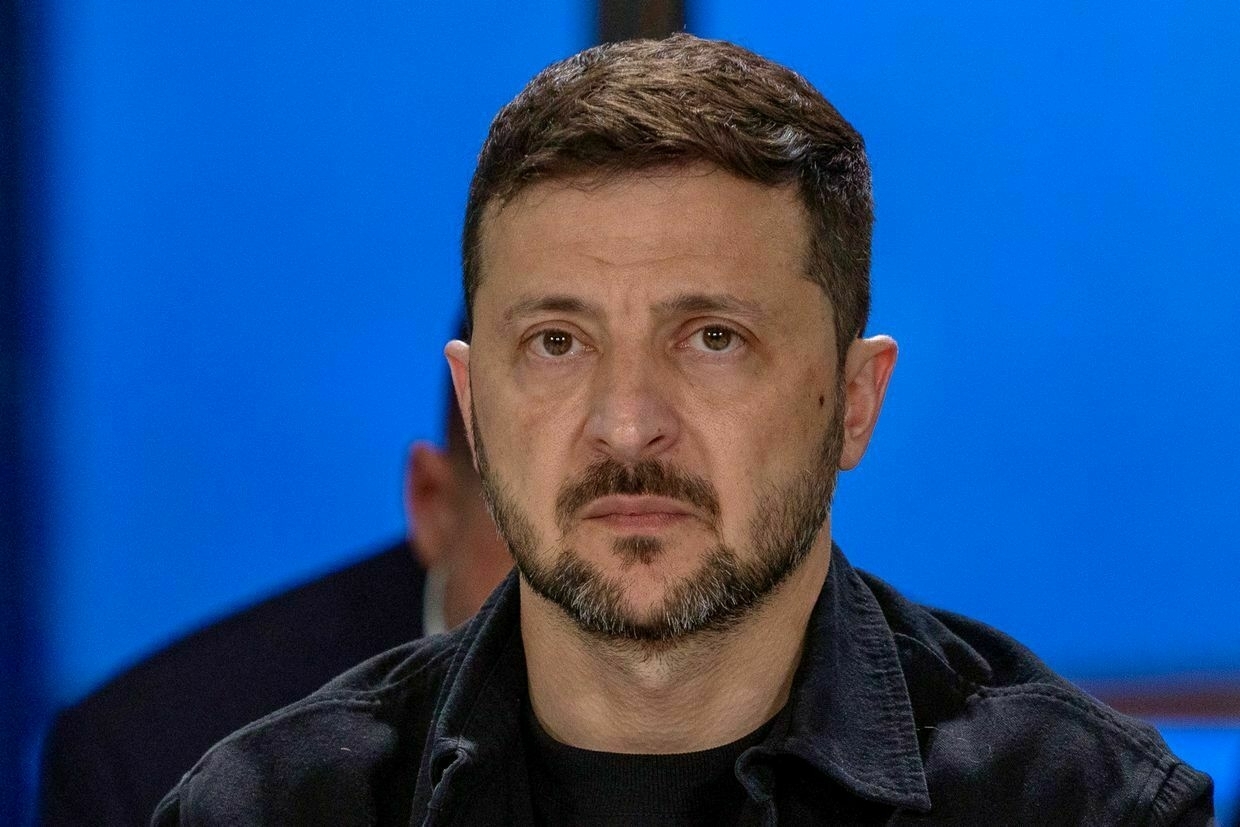
-
Ukraine war latest: Ukraine strikes targets in Russia, including gunpowder plant
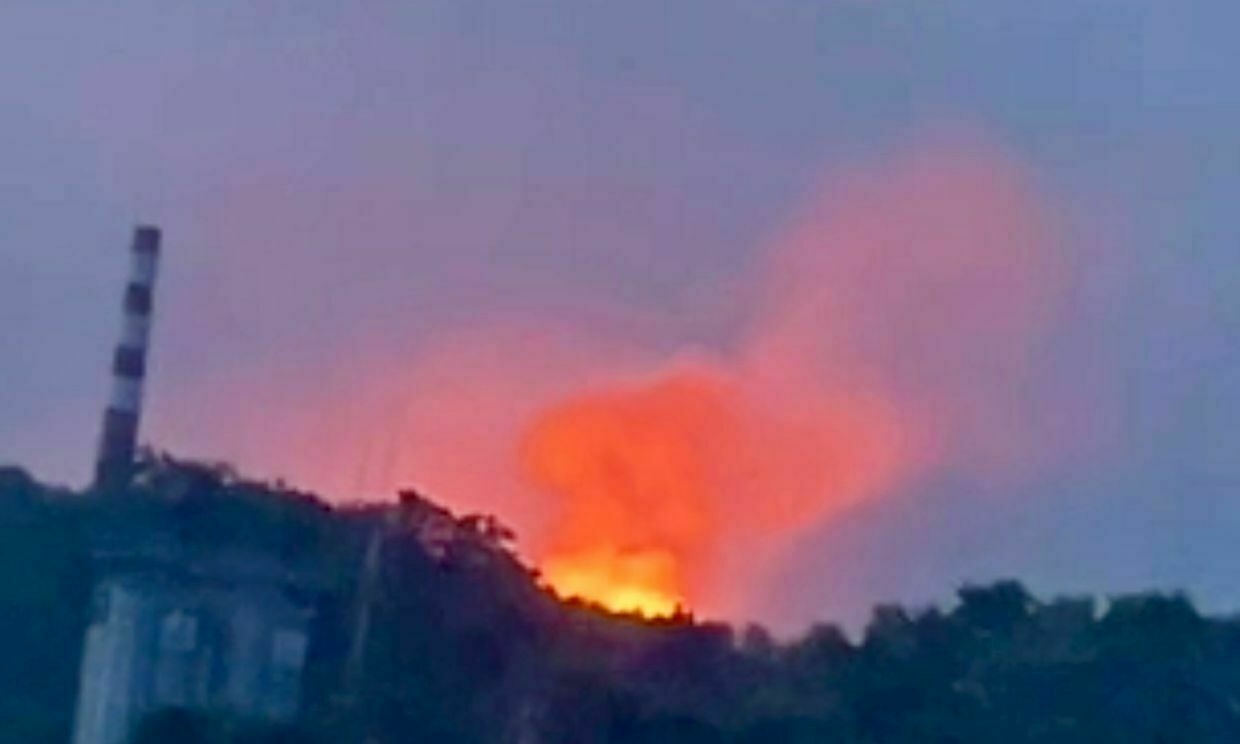
Key developments on June 11:
- Ukrainian drones strike targets in Russia, including gunpowder plant, General Staff says
- Zelensky urges ‘stronger’ EU sanctions on Russia, lower oil price cap
- Ukraine repatriates bodies of 1,212 fallen soldiers
- Ukraine’s SBU releases fresh video of Operation Spiderweb, teases ‘new surprises’
- NATO summit statement omits Ukraine’s entry bid, $40 billion pledge, Bloomberg reports
Ukrainian drones struck multiple military targets in Russia, including the Tambov Gunpowder Plant, overnight on June 11, the General Staff of Ukraine’s Armed Forces reported.
The plant, one of Russia’s main manufacturers of gunpowder and explosives for small arms, artillery, and rocket systems, caught fire following the drone strike, according to the General Staff.
Local residents reported hearing explosions and shared videos showing a large blaze near the facility, according to the Russian independent media outlet Astra.
The General Staff described the attack as part of a broader operation to degrade Russia’s ability to produce explosive materials and ammunition used in the full-scale war against Ukraine.
The Tambov facility has been targeted several times since November 2023, and U.S. sanctions were imposed on it that same year. Tambov Oblast, located southeast of Moscow, lies hundreds of kilometers from Ukraine and shares no direct border with it.
Russian state news agency TASS confirmed a drone attack but did not mention the strike on the powder plant. Tambov Oblast Governor Maxim Egorov said that emergency services had extinguished the fire and that there were no casualties, though he did not specify the location of the fire.
In addition to the strike on Tambov, Ukrainian drones hit the ammunition depot of Russia’s 106th Airborne Division in Kursk Oblast and the depot at Buturlinovka airfield in Voronezh Oblast, the General Staff said.
The extent of the damage is still being assessed, the General Staff said.
“The Defense Forces continue to take all measures to undermine the military and economic potential of the Russian occupiers and force Russia to stop its armed aggression against Ukraine,” the statement reads.
Ukraine has ramped up long-range drone strikes in recent weeks, targeting Russian air bases and arms production facilities in an effort to disrupt Moscow’s war machine ahead of an anticipated Russian summer offensive.
As Russia inches closer to Dnipropetrovsk Oblast, new Ukrainian region might soon be at warMoscow said its troops had crossed into Dnipropetrovsk Oblast and were conducting offensive operations in the region, a claim Kyiv quickly denied as “Russian disinformation.” Russian troops have been pushing toward Dnipropetrovsk Oblast for months, trying to solidify the southern flank to capture Pokrovsk and the remaining parts of theThe Kyiv IndependentAsami Terajima
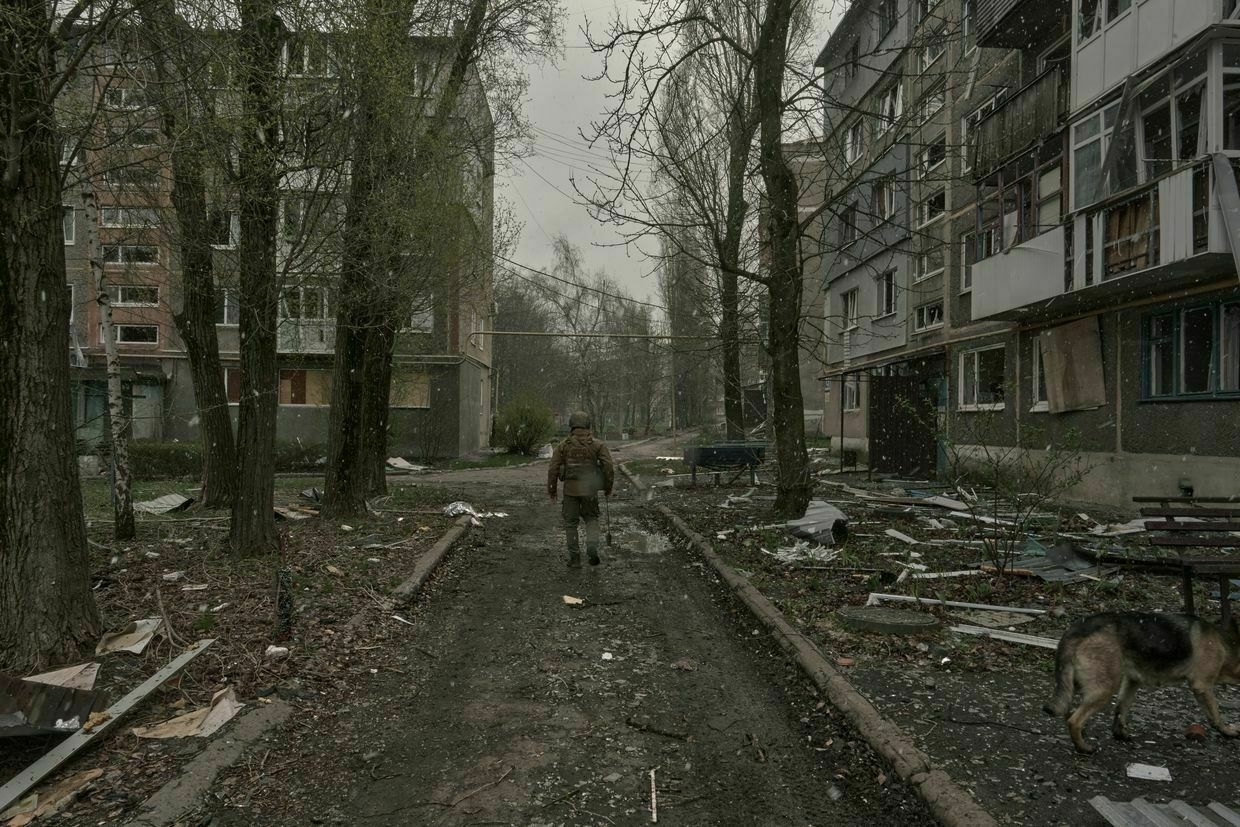
Zelensky urges ‘stronger’ EU sanctions on Russia, lower oil price capPresident Volodymyr Zelensky on June 11 called on the European Union to impose tougher sanctions against Russia, arguing that stronger financial pressure is necessary to curb Moscow’s war effort.
Speaking at the Ukraine-Southeast Europe Summit in Odesa, Zelensky said the upcoming 18th EU sanctions package “could be stronger,” especially in targeting Russian oil tankers and the financial sector. He urged the EU to further reduce the price cap on Russian oil exports.
“A ceiling of $45 per barrel of oil is better than $60, that’s clear, that’s true. But real peace will come with a ceiling of $30,” he said. “That’s the level that will really change the mindset in Moscow."
After the 17th package of sanctions against Russia took effect on May 20, Ukraine’s allies announced the following day that another round of restrictions was already in the works.
European Commission President Ursula von der Leyen announced on June 10 that the EU is considering lowering the oil price cap from $60 to $45 per barrel — a measure that will be discussed at the upcoming G7 summit in Canada on June 15–17.
The Kremlin’s budget is increasingly strained by soaring military expenditures, with Russia’s Finance Ministry relying heavily on energy revenues to fund the war against Ukraine.
The push for tighter sanctions comes as Russia continues to reject ceasefire proposals and presses forward with military operations. Zelensky warned that Odesa remains one of Russia's "main targets," with plans to push beyond it toward the borders with Romania and Moldova.
"Russia wants to destroy it, as it has done with countless cities and villages in the occupied territories," he said. "Russian military plans point to this region — Odesa — and then to the border with Moldova and Romania."
Odesa is a major port city in southern Ukraine, located on the northwestern coast of the Black Sea. The president warned of possible destabilization efforts in the broader region, comparing the Kremlin's strategy to its previous interference in the Balkans.
"We saw this before in the Balkans, where Russia intensified interethnic friction, carried out sabotage, and even attempted coups," Zelensky said.
The Odesa summit was attended by several southeastern European leaders, including Serbian President Aleksandar Vucic and Romania's newly elected President Nicusor Dan.
Vucic's trip marked his first official visit to Ukraine since the start of Russia's full-scale invasion.
Ukraine bracing for ‘painful’ reduction in US military aid after Hegseth announces cutsEditor’s note: For security reasons, the real names of the soldiers mentioned in this story have not been used. A reduction in U.S. military aid to Ukraine would be “painful” and could have potentially “dire consequences” for the global order, Ukrainian lawmakers and soldiers have told the Kyiv Independent.The Kyiv IndependentKateryna Hodunova
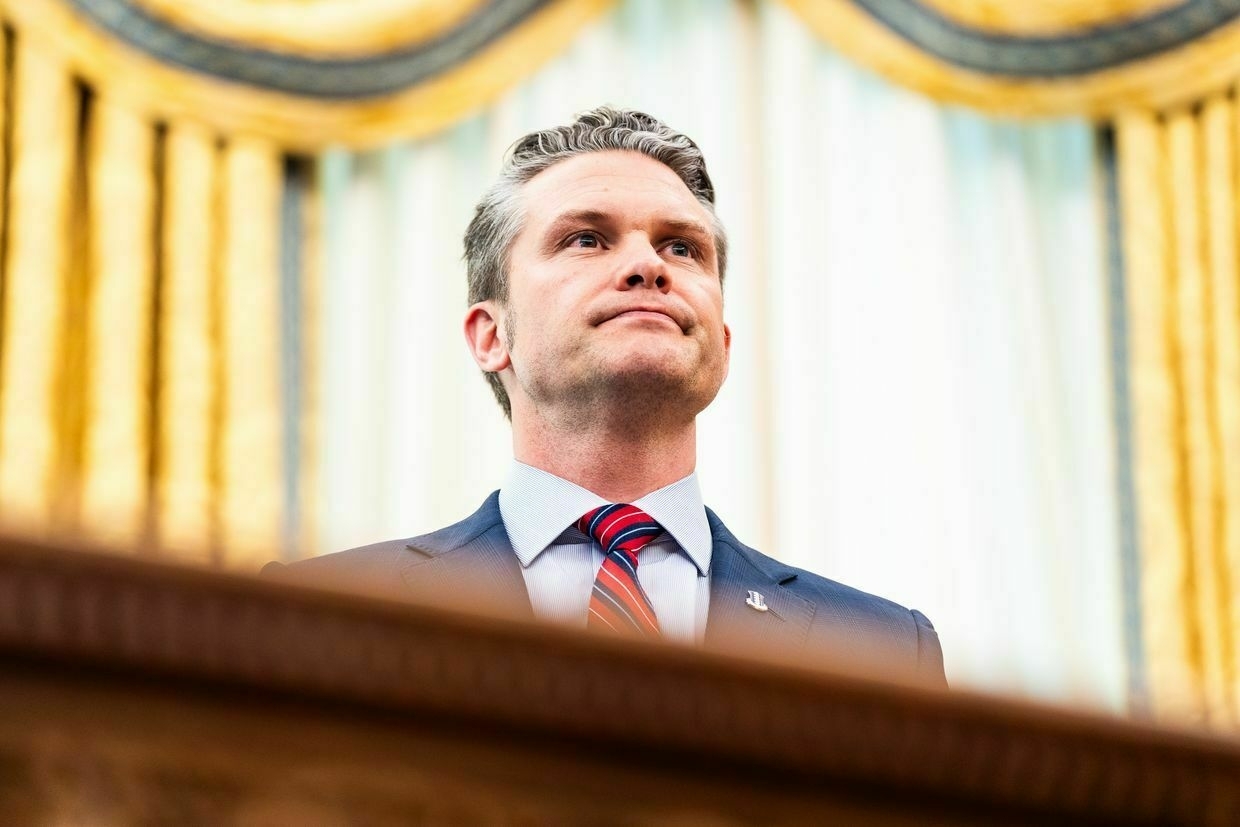
Ukraine repatriates bodies of 1,212 fallen soldiersUkraine has brought back the bodies of 1,212 fallen service members, the Ukrainian Coordination Headquarters for the Treatment of Prisoners of War (POW) said on June 11.
The announcement follows Russian-Ukrainian Istanbul talks on June 2, which focused on exchanges of POWs and fallen soldiers.
The repatriation was carried out through a coordinated effort involving the Security Service of Ukraine (SBU), the Armed Forces, the Interior Ministry, the Ombudsman's Office, the State Emergency Service, and other national security and defense institutions. The International Committee of the Red Cross also supported the operation.
The remains of soldiers were returned from multiple front-line regions, including Kharkiv, Donetsk, Luhansk, Zaporizhzhia, Kherson, and Sumy oblasts.
Officials emphasized that investigative and forensic teams from the Interior Ministry and the Health Ministry are working to identify the bodies in the shortest possible time.
Vladimir Medinsky, aide to Russian President Vladimir Putin, claimed Russia transferred the bodies of 1,212 Ukrainian soldiers in accordance with the agreements in Istanbul, while Ukraine released the remains of 27 Russian service members.
The Ukrainian side did not disclose how many Russian bodies were handed over in return.
At the Istanbul meeting on June 2, Russian and Ukrainian delegations agreed on a new exchange of POWs but failed to reach a ceasefire agreement.
The Turkey-hosted talks were the second round since mid-May and resulted in an agreement to exchange severely wounded and young prisoners, with President Volodymyr Zelensky saying up to 1,200 individuals could be returned on each side. Russia also pledged to transfer up to 6,000 bodies of Ukrainian soldiers.
Following the Istanbul talks, Ukraine and Russia have already conducted two prisoner exchanges on June 9 and 10. While exact figures were not immediately disclosed, Ukraine confirmed the return of severely wounded and chronically ill prisoners, including those captured during the 2022 siege of Mariupol and held for more than three years.
In Istanbul, Ukraine also submitted a peace proposal that called for a full ceasefire, an "all-for-all" POW exchange, the return of abducted children, and the use of frozen Russian assets to rebuild Ukraine. Russia has yet to formally respond.
‘Ukrainians have been stripped of illusion of control’ — Filmmaker Kateryna Gornostai on Russia’s war, cinema and reclaiming the narrativeWhen Russia launched its full-scale invasion of Ukraine, film director Kateryna Gornostai found herself questioning whether she would continue working. “I had this feeling that life — at least professionally — had come to an end,” she says. “Who needed directors or screenwriters, then? At most, volunteers were needed, but hardly anyoneThe Kyiv IndependentKateryna Denisova
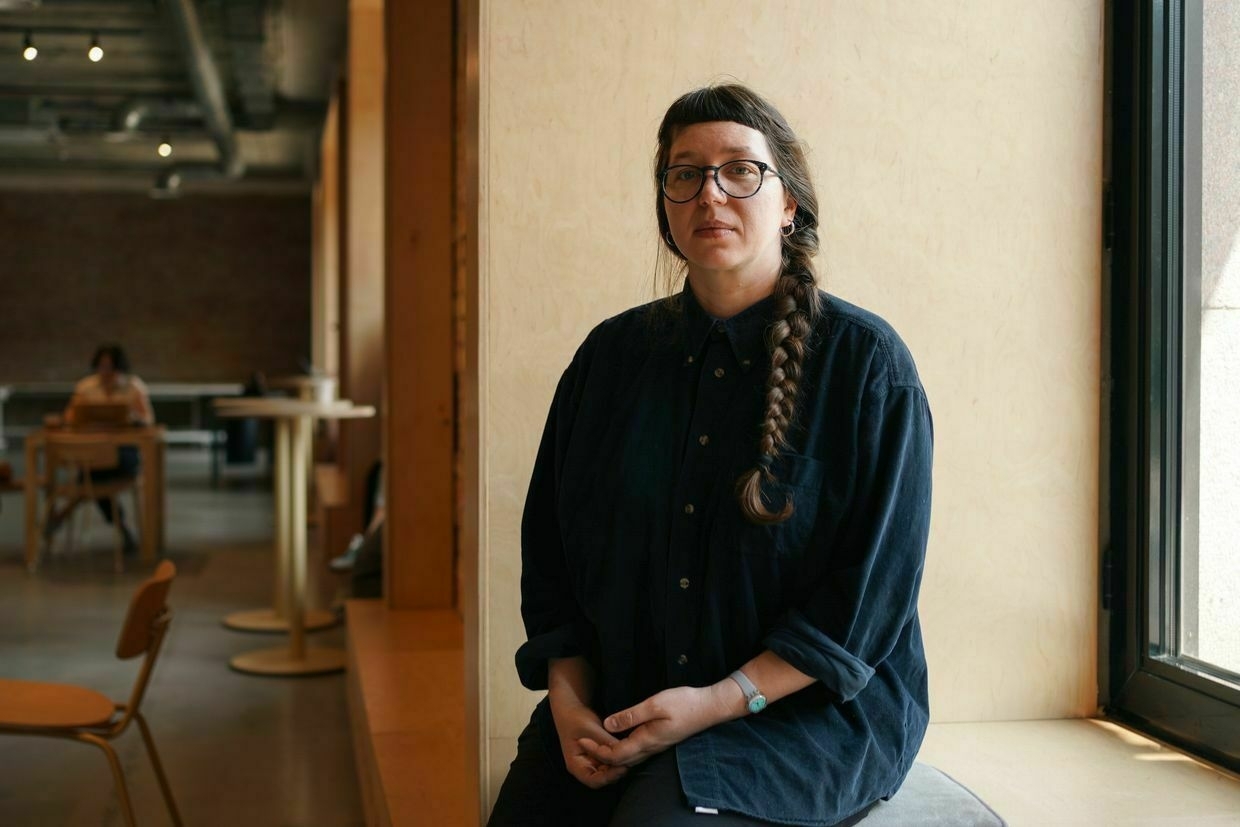
Ukraine's SBU releases fresh video of Operation Spiderweb, teases 'new surprises'The Security Service of Ukraine (SBU) released on June 11 a new video detailing the sequence of its mass drone strike against Russia's strategic aviation earlier this month.
The Operation Spiderweb, carried out on June 1, involved 117 drones that were hidden in trucks across Russia and deployed against four air bases, some thousands of kilometers from the Ukrainian border.
The strike deep in the rear damaged 41 aircraft, including Tu-95, Tu-22M3, and Tu-160 bombers, rare A-50 spy planes, and An-12 and Il-78 transport aircraft, causing damage of over $7 billion, the SBU said.
Trucks, seen in the footage driving in an undisclosed location, first transported first-person-view (FPV) drones and wooden cabins to Russia, the SBU said. Already on Russian territory, the vehicles were loaded with cabins, which, in turn, carried the drones.
0:00/A video detailing Ukraine's Operation Spiderweb on June 1, 2025. (SBU) The preparations were taking place in the Russian city of Chelyabinsk, not far from a Federal Security Service (FSB) office, according to the SBU.
The loaded trucks then drove to multiple locations in the cities of Ivanovo, Ryazan, and in the Murmansk, Irkutsk, and Amur oblasts. The cabins opened remotely at the time of the attack, allowing the drones to strike Russian planes at the Belaya, Olenya, Dyagilevo, and Ivanovo air bases.
The operation was also meant to strike at the Russian air base in Ukrainka in Amur Oblast, but this part of the attack failed.
In the strike, Ukraine deployed drones specially designed by SBU specialists for attacks deep in the rear. Their unique features allowed them to be remotely controlled in real time thousands of kilometers behind the border, an SBU source told the Kyiv Independent.
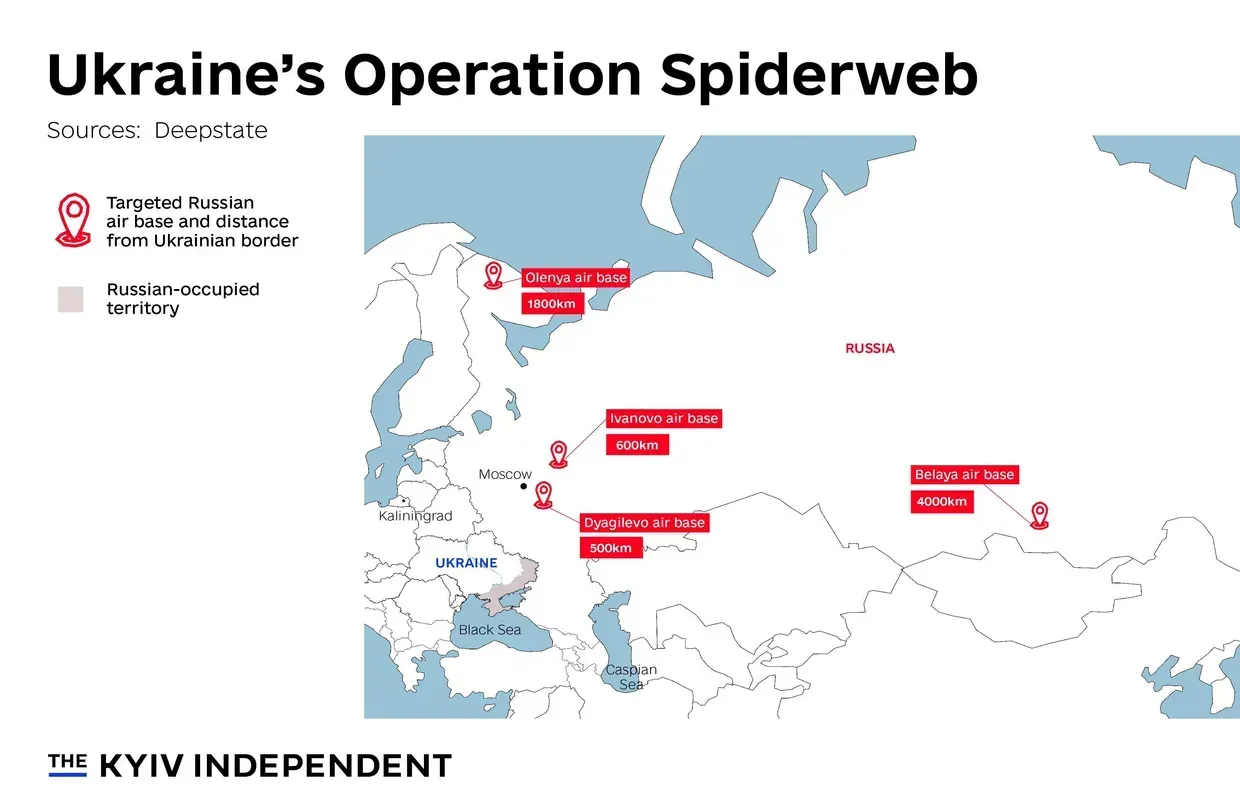
Ukraine's Operation Spiderweb. (Nizar al-Rifai/The Kyiv Independent) The drones' design also helped them "bypass Russian defenses and effectively strike the strategic aviation," the source said.
SBU chief Vasyl Maliuk, who personally oversaw the operation, stressed that Ukrainian drones targeted "absolutely legitimate targets – military airfields and aircraft that attack our peaceful cities."
"The SBU is hitting and will hit (Russia) where it considers itself unreachable!" Maliuk said in a statement.
"We are working on new surprises, no less painful than the Operation Spiderweb."
The attack was lauded by Ukrainian leaders and Western partners, with NATO Admiral Pierre Vandier calling it a reinvention of "the Trojan Horse" method with "technical and industrial creativity."
Various satellite imagery released after the attack showed around a dozen destroyed planes. NATO estimates that between 10 and 13 Russian planes were completely destroyed, and more were damaged.
In turn, President Volodymyr Zelensky claimed that roughly half of the 41 targeted planes have been damaged beyond repair. Russia acknowledged damage to its aircraft but claimed all of them will be "restored."
America’s weak strongmanOver the past two months, financial investors have hit upon a new trading strategy, based on a simple rule: TACO — Trump Always Chickens Out. America’s president threatens to slap massive import tariffs on friends and foes alike, or to remove the Federal Reserve chair, only to back down whenThe Kyiv IndependentTimothy Snyder
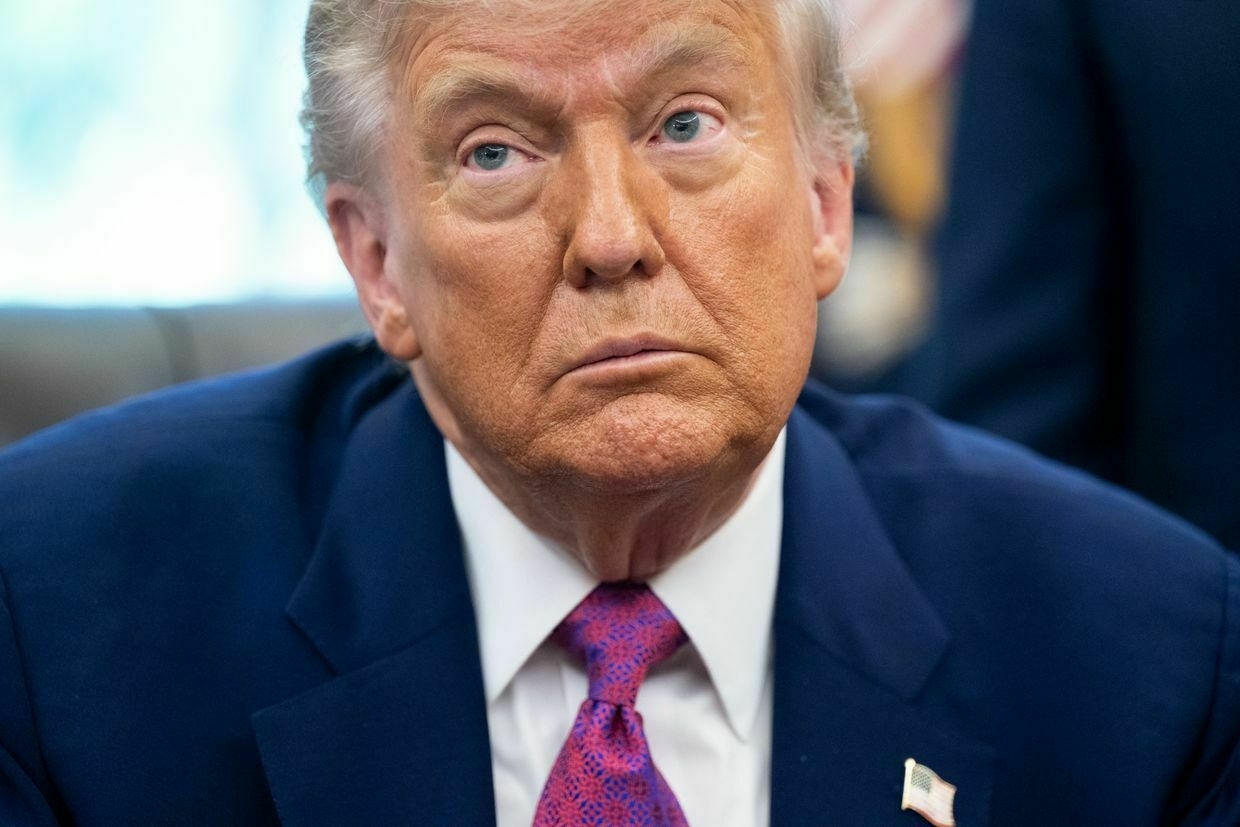
NATO summit statement omits Ukraine's entry bid, $40 billion pledge, Bloomberg reportsA one-page draft of a joint declaration for the upcoming NATO summit omits Ukraine's membership aspirations and last year's pledge of over $40 billion in support, Bloomberg reported on June 11 after reviewing the draft.
This news signals that, for the first time since 2022, Russia's war against Ukraine will not be the chief focus of the annual NATO meeting, which is taking place on June 24-25 in The Hague.
The unusually brief document recognizes Russia as a threat to NATO but not as an aggressor in Ukraine. It also does not mention China, Bloomberg reported.
The communique of the 2024 summit in Washington named Beijing as a "decisive enabler" of Russia's war against Ukraine. Last year's gathering also included a declaration that Ukraine's path to NATO is "irreversible" and promised more than $40 billion in additional military aid.
This year, the document will solely focus on defense spending, as U.S. President Donald Trump pushes NATO partners to hike the military expenditure benchmark from 2% to 5% of GDP.
The final version of the statement can still change, Bloomberg reported.
The brevity of the communique and the summit itself, as well as the decreased focus on Ukraine, stems from the effort to avoid conflict between Trump and European allies.
In a sharp break from former U.S. President Joe Biden, the Trump administration has not approved any new military aid packages to Ukraine and signaled its intent to reduce assistance for Kyiv in the next year's budget.
The U.S. president initially vowed to broker a peace deal between Kyiv and Moscow but became increasingly less engaged in the process as the negotiations stalled and Russia only intensified its attacks against Ukraine.
According to Bloomberg, NATO allies will pledge to allocate at least 3.5% of GDP to defense needs and 1.5% to protecting infrastructure and civil preparedness by 2032. Member states will also consider counting their contributions to Ukraine as part of the new defense spending targets, the news outlet reported.
The summit was preceded by rumors that President Volodymyr Zelensky would not be invited to participate for the first time due to U.S. opposition.
Later, the speculations were dispelled after the Dutch media reported that NATO Secretary General Mark Rutte had invited the Ukrainian leader to attend.
Note from the author:
Ukraine War Latest is put together by the Kyiv Independent news desk team, who keep you informed 24 hours a day, seven days a week. If you value our work and want to ensure we have the resources to continue, join the Kyiv Independent community.
-
EU, Germany boost Ukraine's energy efficiency fund with 18 million euros
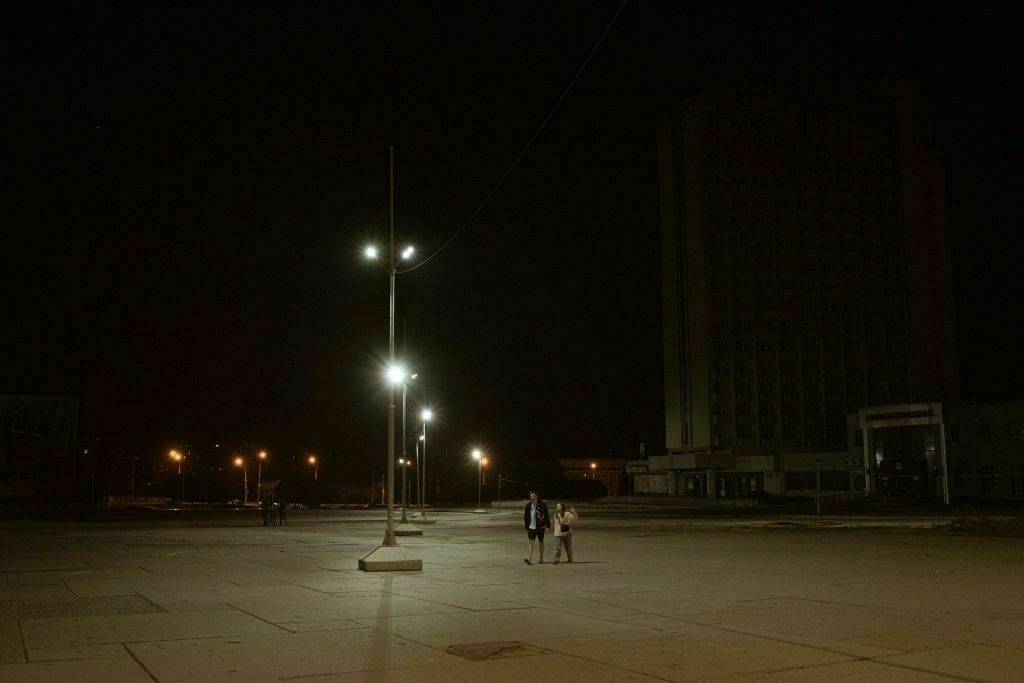
The EU and Germany have topped up Ukraine’s Energy Efficiency Fund (EEF) with an additional 18 million euros ($20.7 million) to expand their support for Ukraine’s energy independence and green recovery, the EU Delegation to Ukraine said on June 11.
The move was announced at the 10th meeting of the delegation’s Coordination Council in Kyiv.
The EU provided 13 million euros ($15 million) of the new funding, while Germany’s International Climate Initiative (IKI) provided 5 million euros ($5.7 million).The International Finance Corporation (IFC), the investment arm of the World Bank, will continue to manage the EEF’s trust fund.
The fund, established in 2019, is split into two programs: VidnovyDIM, which helps repair war-damaged homes, and EnergoDIM, which co-finances grants to cut energy consumption and costs by installing new insulation, windows, and heating systems.
“Today, when Russia is shelling Ukrainian homes almost every night, the VidnovyDIM Fund program helps families cover the costs of repairing walls, roofs, and windows so that they can return home safely and with dignity,” EU Ambassador to Ukraine Katarina Maternova said.
“In parallel, through the EnergoDIM program, we continue to support the thermal modernization of old buildings, which allows us to reduce energy consumption and monthly costs.”
Since 2021, the fund has grown from 90 projects to 1,500 projects, in cooperation with homeowners’ associations, and helped Ukraine save 300 kilowatts per hour in energy consumption– as much as the city of Chernivtsi consumes. The EEF has helped over 217,000 families modernize and repair their homes, of which half were covered by the VidnovyDIM program.
The new financing will improve the efficiency of grants, raise the grant size to meet demand, and help more people under Ukraine’s environmentally sustainable “Build Back Better” principle. The grant limit should increase to more than 200,000 euros, said Ukraine’s Development of Communities and Territories First Deputy Minister Alena Shkrum.
The EFF will now be able to resume requests, which were paused due to the high number of applications. Around 10% of Ukraine’s housing stock has been damaged or destroyed, while much of the country’s heating system is from the Soviet era and inefficient, with apartments unable to control the heating in the winter.
Ukraine’s energy grid has been targeted relentlessly by Russian attacks, causing widespread energy instability across the country. At the same time, bills have increased for electricity and heating, frustrating citizens who have already taken a financial hit due to the war.
The fund has modernized homes and schools to become more energy efficient, which not only cuts costs but also retains warmth during blackouts, said the Shkrum. More Ukrainians are beginning to understand the importance of energy efficiency due to Russian attacks, “which is why the fund should continue functioning, reforming, and developing further,” she added.DTEK to build one of Europe’s largest energy storage facilities, company announcesUkraine’s largest private energy company DTEK secured a $72-million loan to build one of the largest battery energy storage complexes in Eastern Europe, the company said on June 3.The Kyiv IndependentDominic Culverwell
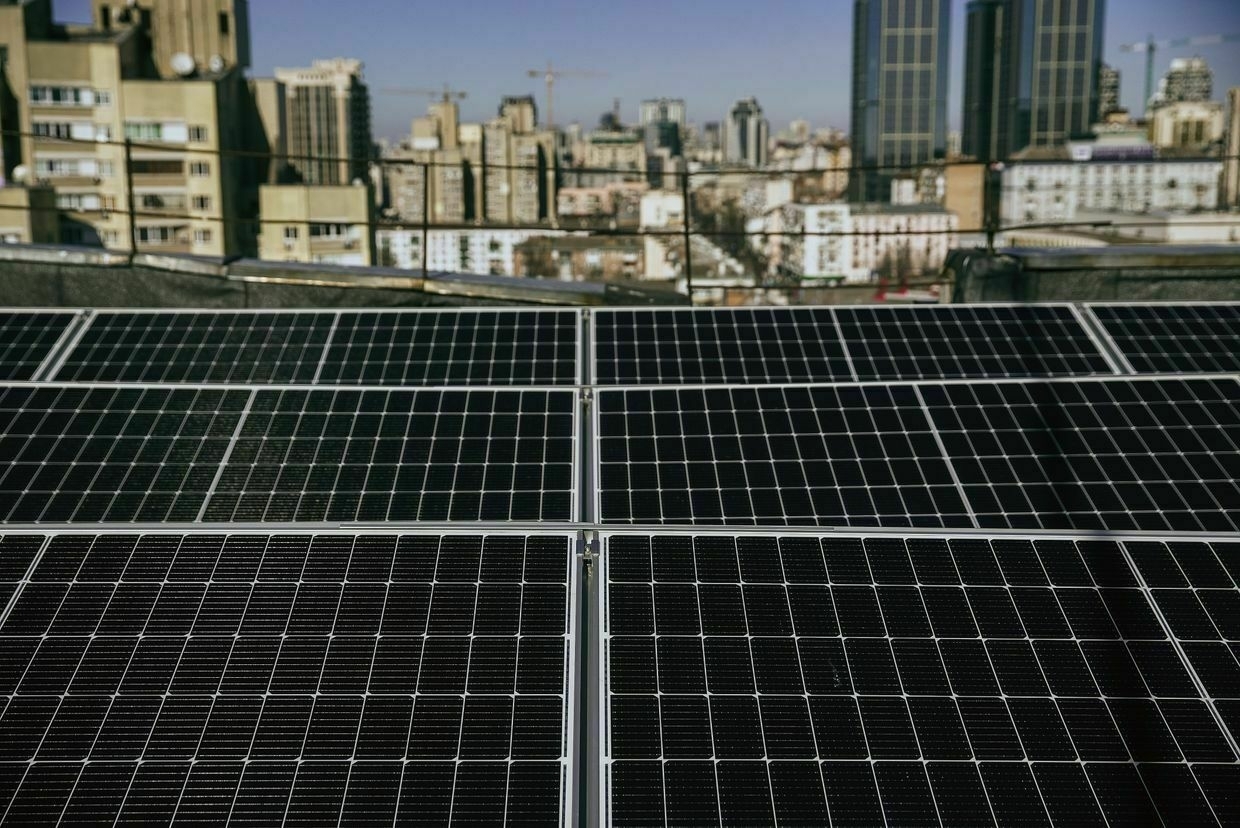
-
Russian factories continue to BURN: Gunpowder plant hit by Ukrainian drones | NEWS PULSE
-
Ukraine bracing for 'painful' reduction in US military aid after Hegseth announces cuts

Editor’s note: For security reasons, the real names of the soldiers mentioned in this story have not been used.
A reduction in U.S. military aid to Ukraine would be “painful” and could have potentially “dire consequences” for the global order, Ukrainian lawmakers and soldiers have told the Kyiv Independent.
U.S. Defense Secretary Pete Hegseth on June 10 signalled the move is almost certain to happen as he discussed Washington’s defense budget for 2026 during a congressional hearing.
Highlighting the Trump administration’s “very different view” of the war in Ukraine compared to that of Joe Biden’s, Hegseth insisted a “negotiated peaceful settlement is in the best interest of both parties and our nation’s interests."
Though he didn’t reveal specific details of the cuts, Ukraine is already bracing for its effects and looking for options to fill the likely sizable gap in support, lawmaker Iryna Friz, a parliamentary committee member on national security, defense, and intelligence, told the Kyiv Independent.
Friz said there is a “whole range” of military aid that Ukraine simply cannot obtain from other Western allies, and any reduction in these capabilities will be “painful."
“But I am convinced that instead of being emotionally affected by such statements (from Hegseth) or frustrated, Ukraine must demonstrate its readiness to strengthen its defense capabilities and increase communication with its partners to continue to defend its sovereignty,” Friz added.
Changes in the U.S. approachWith U.S. President Donald Trump’s return to the White House, Washington has sharply shifted its policy toward Ukraine. Even though Ukraine still receives military aid approved by the Biden administration, and intelligence continues to flow, Trump has already temporarily halted both once, and no new aid packages have been announced in the almost five months of Trump’s presidency.
Ukraine continues to hold the line against Russia’s grinding and slow advances, but any reduction in U.S. aid will likely affect Kyiv’s ability to fight back against Moscow’s forces, as well as undermining ongoing U.S.-led peace efforts.
“This reduction of military support might undermine our defensive capabilities, which, in turn, might translate into more casualties both among our soldiers and civilians,” lawmaker Oleksandr Merezhko, the chair of the parliament’s foreign affairs policy, told the Kyiv Independent.
“When (Russian President Vladimir) Putin is preparing for a summer offensive, according to some sources, it sends the wrong signal, because Putin might take it as encouragement to double down on the war efforts,” Merezhko added.
Ukraine’s SBU releases fresh video of Operation Spiderweb, teases ‘new surprises’“The SBU is hitting and will hit (Russia) where it considers itself unreachable!” SBU chief Vasyl Maliuk said. “We are working on new surprises, no less painful than the Operation Spiderweb.”The Kyiv IndependentMartin Fornusek
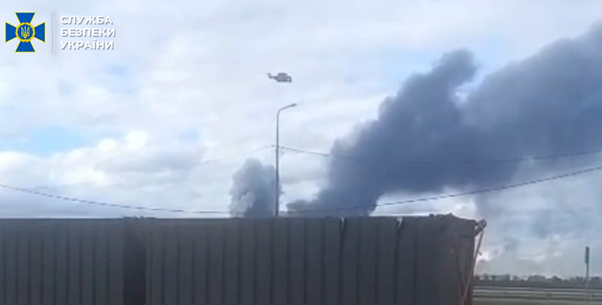
The equipment gapSince the start of the full-scale invasion, the U.S. has given Ukraine around $74 billion in military aid, and has provided weapons that have changed the course of events both on the front line and in cities hundreds of kilometers away from it.
Washington has sent Ukraine several million rounds of ammunition, tanks, armored vehicles, long-range ATACMS missiles, HIMARS, and cutting-edge Patriot air defense systems that are Ukraine’s only effective defense against Russian ballistic missiles.
But under the Trump administration, as well as not receiving new military aid packages, some weapons that were intended for Ukrainian troops have been diverted elsewhere.
According to Zelensky, while then-Defense Secretary Lloyd Austin was in the office, the U.S. pledged to give Ukraine 20,000 missiles to defend against Shahed-type drones, which Russia launches almost every night against Ukrainian cities.
“It was inexpensive, but it is a special technology. We were counting on these 20,000 missiles,” Zelensky said in an interview with ABC published on June 8.
“This morning, my defense minister told me that the U.S. has moved them to the Middle East."
Ukrainian soldiers interviewed by The Kyiv Independent criticized Washington’s recent moves but were not surprised.
“Trump and his entire team are ridiculous cowards. They want to make a deal with (Vladimir) Putin on his terms and sacrifice part of Ukraine. It is more profitable for them,” Bart, a Special Forces sniper fighting in Ukraine’s East, said.
“Reducing American aid is bad for the front line. We depend on it, on their intelligence,” he added.
Ihor, a Ukrainian soldier who also serves on the eastern front, echoed Bart’s stance, adding the new U.S. policies will have “dire consequences” for the global order.
“The U.S. is positioning itself as weak, which will allow dictatorships worldwide to increase pressure (on other countries), and America will not interfere,” he said.
What comes next?In light of the U.S,’s shifting stance, Ukraine’s European allies have pledged to step up military support but countries on the continent are dogged by a decades-long underinvestment in defense production capability.
Ukraine is therefore looking for other options, such as developing its own domestic military production and purchasing American weapons with the help of European partners.
In early June, a Ukrainian delegation led by Presidential Office head Andriy Yermak visited the U.S. to discuss further support for Ukraine’s defense and potential purchases of American weapons.
“We are ready to buy some of it, especially missile defense equipment. The congressmen understand (the issue) and want to move forward with providing Ukraine with everything it needs,” Yermak said on June 6 on national television.
However, following the Ukrainian delegation’s visit, there has been no further action or response from Washington on potential arms supplies or weapons sales to Ukraine and its allies.
Natalia Yermak contributed to this story.
America’s weak strongmanOver the past two months, financial investors have hit upon a new trading strategy, based on a simple rule: TACO — Trump Always Chickens Out. America’s president threatens to slap massive import tariffs on friends and foes alike, or to remove the Federal Reserve chair, only to back down whenThe Kyiv IndependentTimothy Snyder
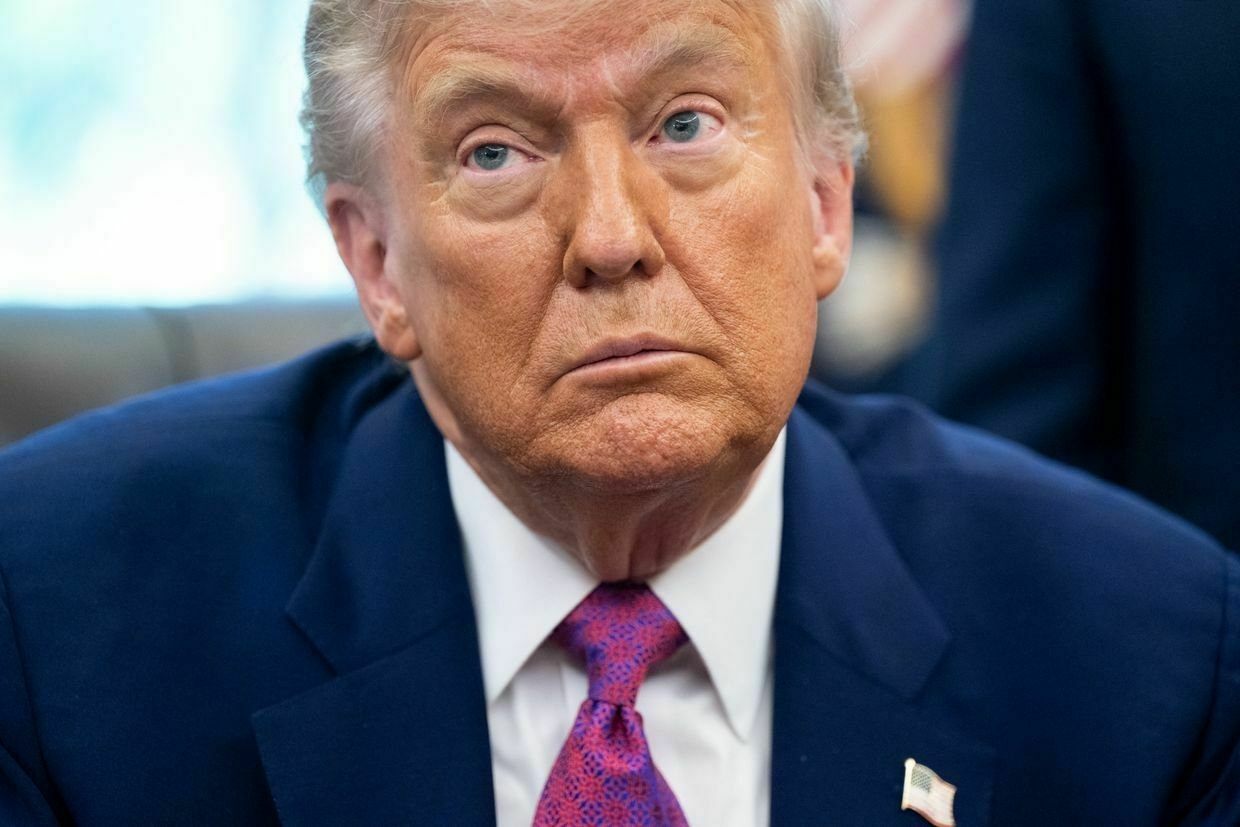
-
Russia wants to seize Odesa! Zelenskyy urged to increase support for Ukraine #shorts
-
'Ukrainians have been stripped of illusion of control' — Filmmaker Kateryna Gornostai on Russia's war, cinema and reclaiming the narrative
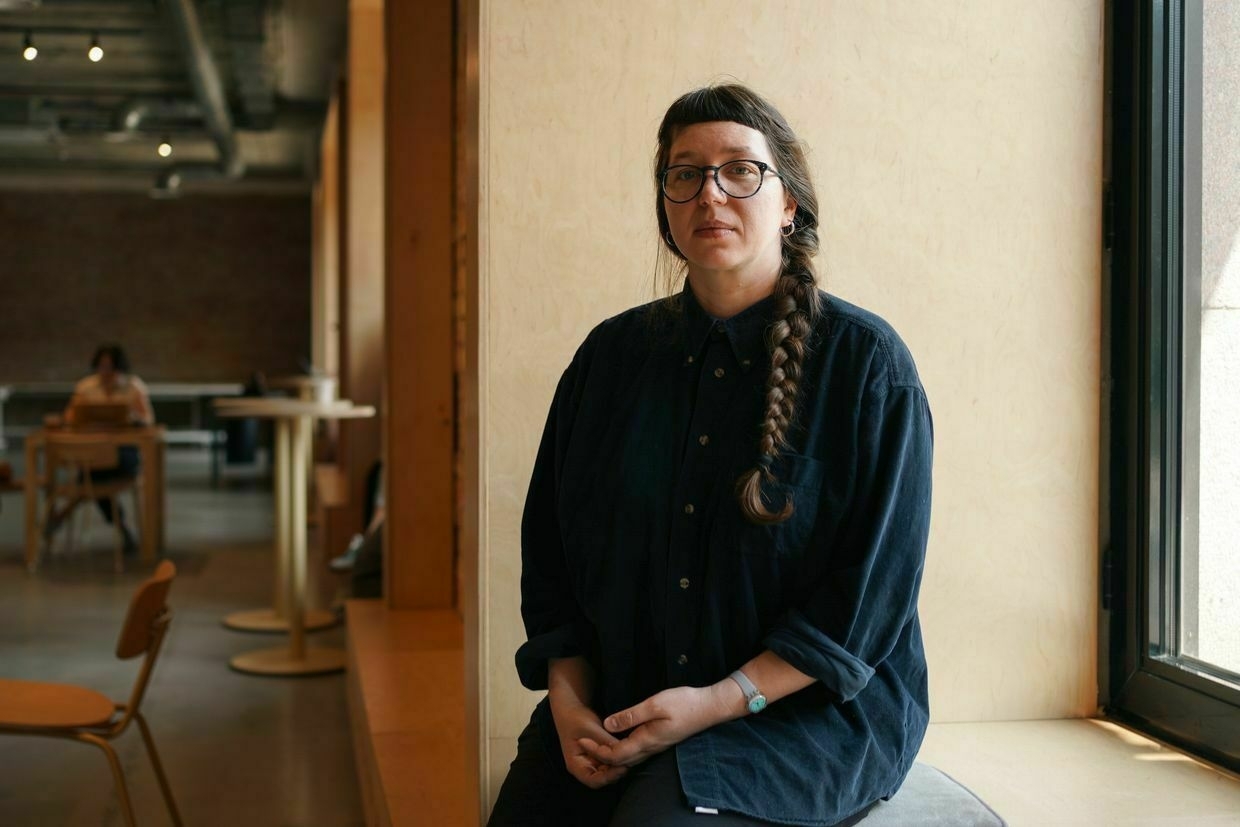
When Russia launched its full-scale invasion of Ukraine, film director Kateryna Gornostai found herself questioning whether she would continue working.
“I had this feeling that life — at least professionally — had come to an end,” she says. “Who needed directors or screenwriters, then? At most, volunteers were needed, but hardly anyone involved in filmmaking."
The urgency of documenting the war soon became clear, but emotionally picking up a camera didn’t come easily. The 36-year-old filmmaker struggled with fear and doubt, knowing any shot she filmed could be her last.
“It felt scary that you’re filming, and these could be your last shots because now a missile will hit here. And that’s all that will be left of you."
Yet, she did return. In 2023, Gornostai began working on her first film following the start of the full-scale war.
Her latest documentary “Timestamp,” was screened at the 75th Berlin International Film Festival — making her the first Ukrainian director in nearly three decades to compete for the Golden Bear. The last was Kira Muratova’s “Three Stories” in 1997.
Gornostai attended the Berlinale only briefly, arriving just for the film’s screening on Feb. 20, days after giving birth to her son.
“Timestamp” follows students and teachers across different parts of Ukraine, including cities regularly pounded with Russian missiles and drones, showing what everyday school life looks like in the war-torn country.
The film is both intimate and unflinching, offering a glimpse into how kids endure the hardship of growing up under constant bombardment.
Gornostai dedicated the film to her younger brother Maksym, killed in action in 2023 while she was still filming.
On June 11, the movie premiered in Ukraine.
“It should be both fun and sad at the same time,” she told the Kyiv Independent days before the screening. “That’s what we hope for."
Author Yuri Andrukhovych on Ukrainian dissident art in Soviet timesIn Soviet times, being a pro-Ukrainian artist was dangerous. The Soviet secret police were particularly brutal in Ukraine, given that it was a country with a long history of resistance to Russian rule. Still, new generations of artists remained committed to their culture in the face of widespread Russification. AmongThe Kyiv IndependentKate Tsurkan
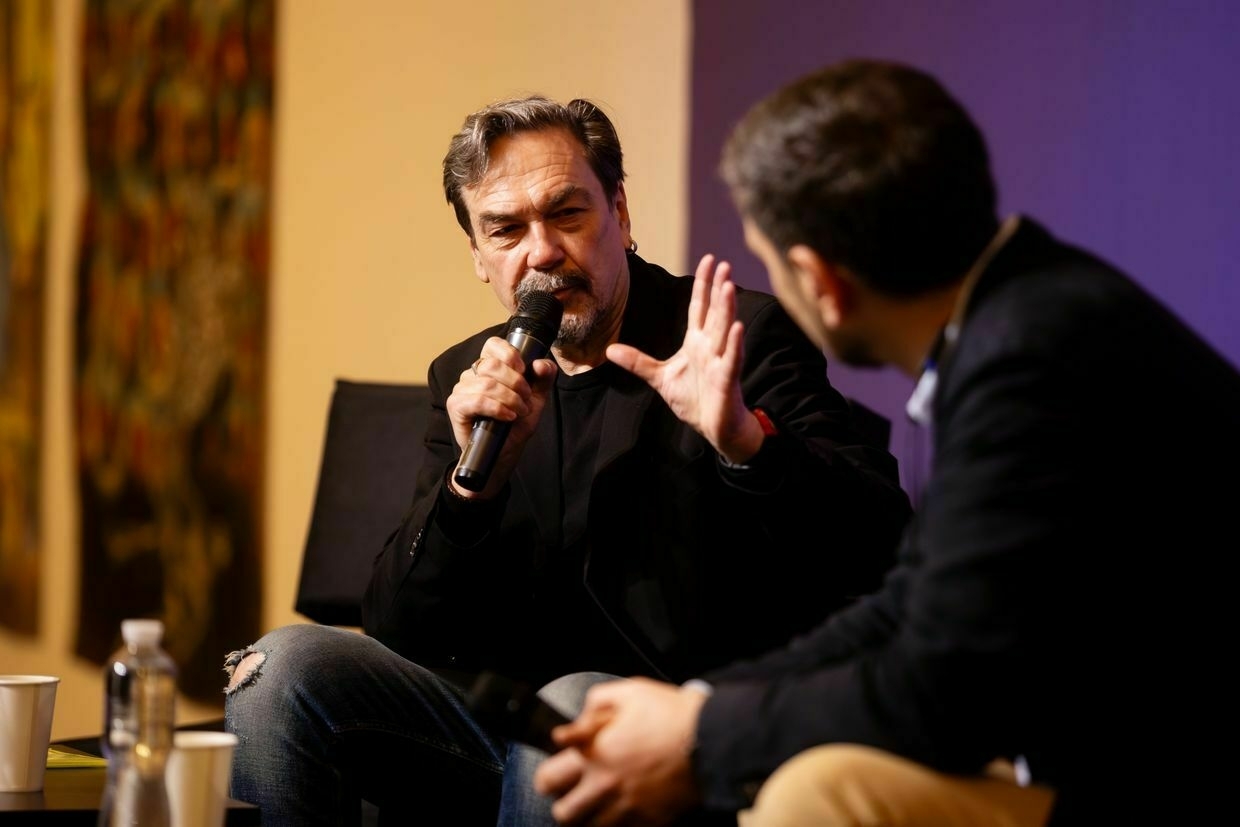
Childhood and warThemes of school and adolescence are in the spotlight of Gornostai’s work, with autobiographical and personal elements running through it.
Just over a month before Russia launched its all-out invasion, Gornostai’s debut feature film “Stop-Zemlia” premiered in Ukraine in January 2022. The movie earned recognition both at home and abroad, winning the Crystal Bear in the Berlinale Generation 14plus section, a category for movies that explore the life of children and teenagers.
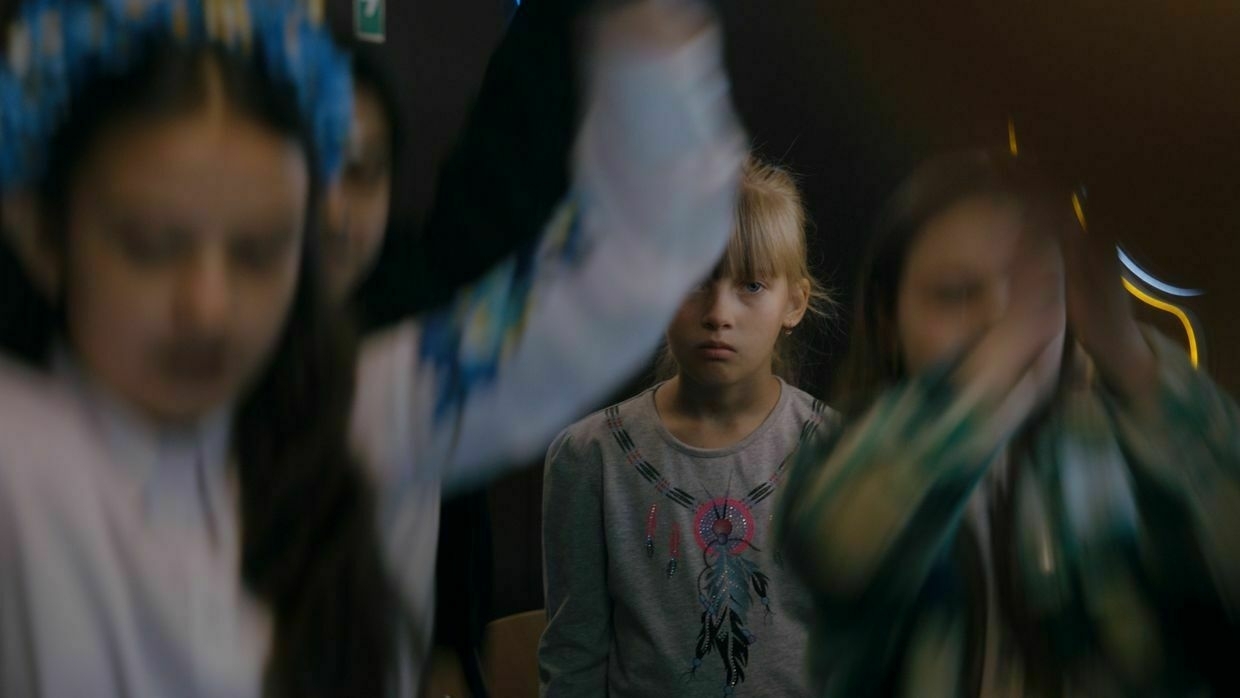
A screenshot from “Timestamp” documentary, Gornostai’s latest film, that was screened at the 75th Berlin International Film Festival. (Timestamp) “Timestamp” has the same focus, yet different story, showing a new reality that Ukrainian education is facing — remote learning, damaged infrastructure, constant air raids, studying in the subway, and the psychological trauma of kids at war.
One of the most important scenes in the film for Gornostai is the funeral of the school principal in the town of Romny, Sumy Oblast, killed in a Russian drone strike on the local school in August 2023.
It’s the only moment in the film where Russia is directly accused of aggression against Ukraine, the phrase spoken by a priest.
“Because already, so much pain has touched nearly every person. Everyone has experienced some kind of loss — from their homes to their loved ones. Many have lost the most precious thing of all: life itself.”
"This school didn't live to see its hundredth anniversary, which would've been next year. It survived World War II, but it didn't survive this war," Gornostai says.
Since the full-scale invasion of Ukraine, around 3,500 educational institutions have been damaged, and around 400 completely destroyed, Deputy Education Minister Yevhen Kudriavets said in late February of 2024.
Turning pointThe Euromaidan Revolution was a turning point for Ukraine — and for a new generation of filmmakers, including Kateryna Gornostai.
She was studying in Moscow at the time of the Maidan protests in 2013 but returned to Kyiv to document the unfolding events.
"We all started making documentaries that explored civil society," she says. "It was a moment of growth — personal and professional. You're filming real events but also thinking about how they'll come together as a story."
She made two documentaries during that time — "Maidan is everywhere" and "Euromaidan." Rough Cut, of which she was a co-author. While many turned their cameras toward the front lines of Russia's war in Ukraine's east that followed, Gornostai chose a different path.
"I'm very scared," she admits. "Even on Maidan, I couldn't stand between the Berkut (riot police) and the protesters like some of our colleagues. I stayed in the rear, and I remember thinking — there are stories here, too."
More than a decade later, she sees that moment as the foundation of a powerful wave of Ukrainian cinema.
"(The Euromaidan Revolution became) a separation from that post-Soviet, Eastern European blend — because it used to feel like our cinema was perceived as part of Russian cinema prior.
Russian propagandaDuring the interview, Gornostai's tone sharpens when the conversation turns to Russia's cultural influence.
For decades, Moscow cast a long shadow over Ukrainian cinema. Even after Ukraine's independence, Russian money and distribution networks kept a grip on the country's film industry.
That influence didn't vanish with the invasion — it just evolved. Since the start of the war шт 2014 against Ukraine, Russia's film industry has shifted to propaganda.

A portrait of Kateryna Gornostai after the interview in Sens bookstore in Kyiv, Ukraine on June 2, 2025 (Elena Kalinichenko/The Kyiv Independent) Yet, Russian films still screen at major international festivals, and Russian actors who support the war against Ukraine continue to win awards.
"Movies are just one small part of a much bigger (Russian) cultural push," Gornostai says.
"In fact, there is a huge campaign that has lasted for many, many decades, involving enormous financial resources, all aimed at creating an image (abroad). This is something that we (in Ukraine) have not done. And what we are trying to do now is to build some kind of postcolonial lens through which Ukraine should now be seen."
“Most of the films that have been screened somewhere weren’t made thanks to the circumstances in Ukraine, but rather in spite of them.”
Abroad, she says, fascination with Russian culture persists, while the understanding of Ukraine still lags behind.
"The fact that there are signs of genocide committed by Russia and that the Holodomor could have already been recognized as a genocide a century back — very few people know that abroad. But they do know the great Russian ballet, literature — all those things that were deliberately built up, promoted, and became part of a certain stereotype."
According to Gornostai, for a long time, there was a prevailing belief in Ukraine that the answer to Russian propaganda should be counter-propaganda. But she thinks that Ukraine should be creating high-quality cinema, not propaganda of its own.
"We simply need something completely different that will make us stand out and represent ourselves on the international stage. I think quality is very important now in this world," she adds.
Gornostai believes that the current crisis in Ukrainian cinema stems more from domestic policy than the war itself. Even before Russia’s full-scale invasion, government inaction had weakened the industry.
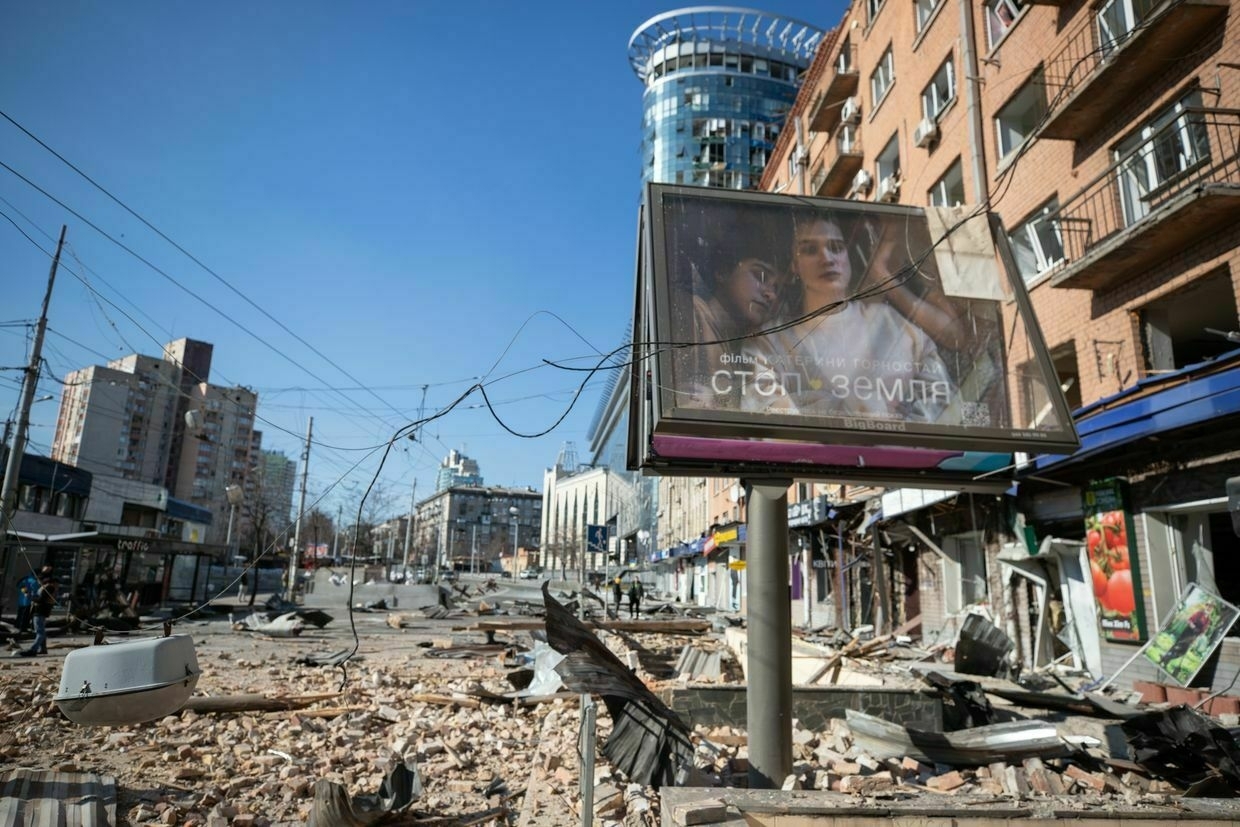
Debris from damaged buildings lies in the street and a destroyed billboard with Gornostai's movie "Stop-Zemlia" after shelling near Lukianivska metro station in Kyiv, Ukraine, on March 14, 2022. (Oleksii Samsonov / Global Images Ukraine via Getty Images) Following the invasion, funding for the State Film Agency was slashed. In 2025, only Hr 204.1 million ($4.9 million) is allocated, nearly 70% less than in 2024.
“Most of the films that have been screened somewhere weren’t made thanks to the circumstances in Ukraine, but rather in spite of them,” says Gornostai. “They were funded either by private money, individual initiatives, or through international grants, producers, or festival pitching awards that made production possible. Documentary filmmaking can survive in this way.”
A standout example is “20 Days in Mariupol” by director Mstyslav Chernov, which documented the Russian siege of the city in 2022 and won Ukraine’s first Oscar in 2024 for Best Documentary.
“This is a huge victory for the truth itself. It preserves and engraves the history of Mariupol and no one will be able to distort it anymore,” Gornostai says.
Post-war scriptGornostai's new feature film, "Antonivka," is expected to be released in 2027. Set in the aftermath of Ukraine's victory in the war, the film explores death.
"Even when this war ends, it won't truly be over," says Gornostai. "Because already, so much pain has touched nearly every person. Everyone has experienced some kind of loss — from their homes to their loved ones. Many have lost the most precious thing of all: life itself."
She believes that once the war ends, there will be a difficult period of collective reckoning — a time when people begin to process their grief. Her film, she says, is an attempt to open that conversation.
"There's this ephemeral law that time heals. It works very strangely. It doesn't really heal. That's not the whole phrase," Gornostai says. "Time simply passes, and it's as if layers of new experiences start to build up after that very significant moment in your life — for example, the death of someone close to you. These layers grow, and it's as if they gradually distance you from that moment."
"That's the subject I'm grappling with now — and it's a subject many others are facing too," she continues. "How do we grieve that kind of loss? How do we reflect on it? The film deals with many kinds of deaths, but at its core, one of its central elements is the acceptance of your own death — the one that awaits you."
One of the central figures in the film is an elderly man who lived through famine and war. As Gornostai speaks, she recalls her two grandfathers who passed away.
"Ukrainians have now been stripped of the illusion of control," the filmmaker says. "But still, I'd like to have the privilege of dying at a time when I know that my family will remain here, that people speaking the Ukrainian language will remain here, and that there is peace and life on this land. And that I am leaving it behind. Not dying in a moment of total turbulence and uncertainty about what will happen tomorrow — as if I'm leaving everyone in the middle of that."
"So this is another privilege: a privilege to die in a free country. And this is one of the motivations for making this film."
Wondering where to start with Dostoevsky? Try his Ukrainian contemporaries insteadSince the start of Russia’s full-scale invasion of Ukraine in 2022, a growing debate has emerged over the cultural and political legacy of Russian literature — particularly the global reverence for classic Russian authors, which critics argue has long served to promote the imperial narratives embedded in their work. AsThe Kyiv IndependentKate Tsurkan
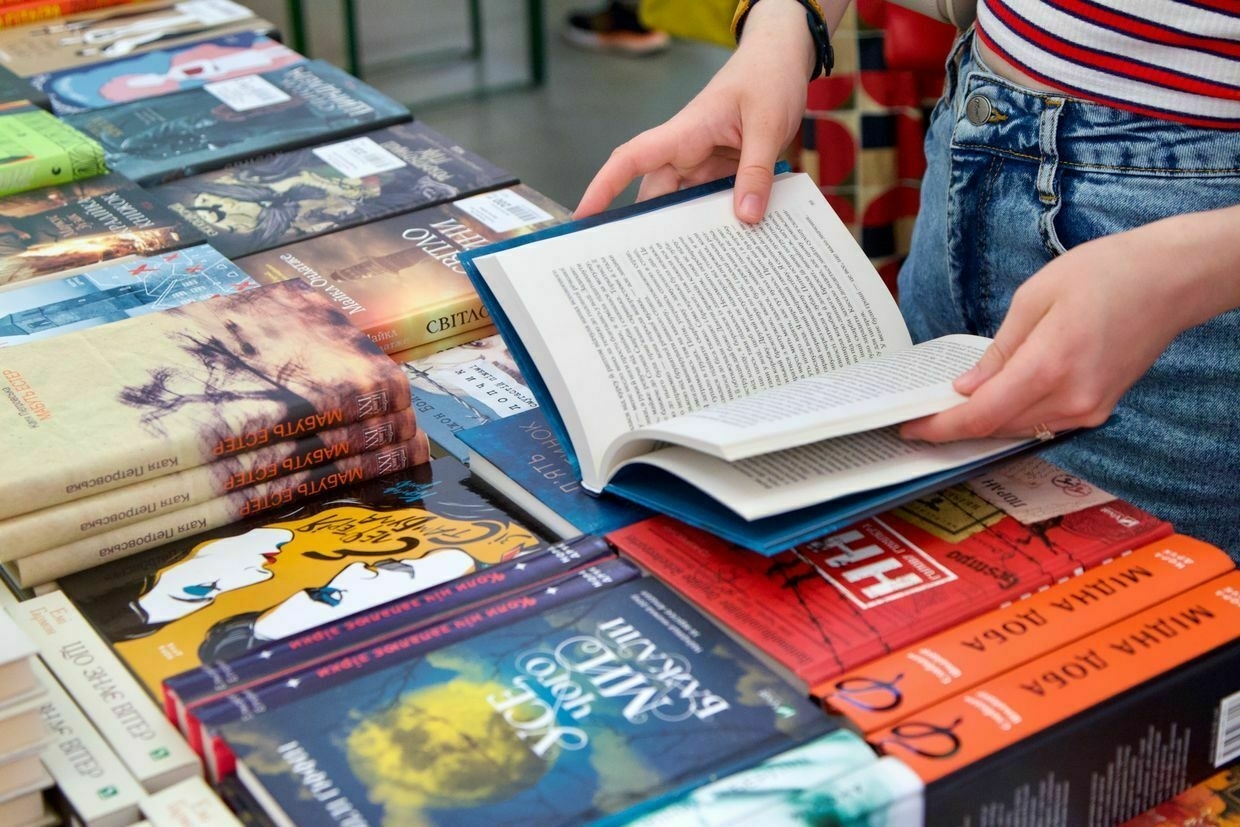
Note from the author:
Hello there! This is Kateryna Denisova, the author of this piece. As Russia’s war against Ukraine grinds on, Ukrainian filmmakers like Kateryna Gornostai are capturing stories that reveal the reality on the ground.
I hope many people will watch these films and learn more about Ukrainian cinema and its directors through interviews like this one.
Your support helps make this work possible. Please consider contributing to sustain our reporting.
-
Zelensky urges 'stronger' EU sanctions on Russia, lower oil price cap
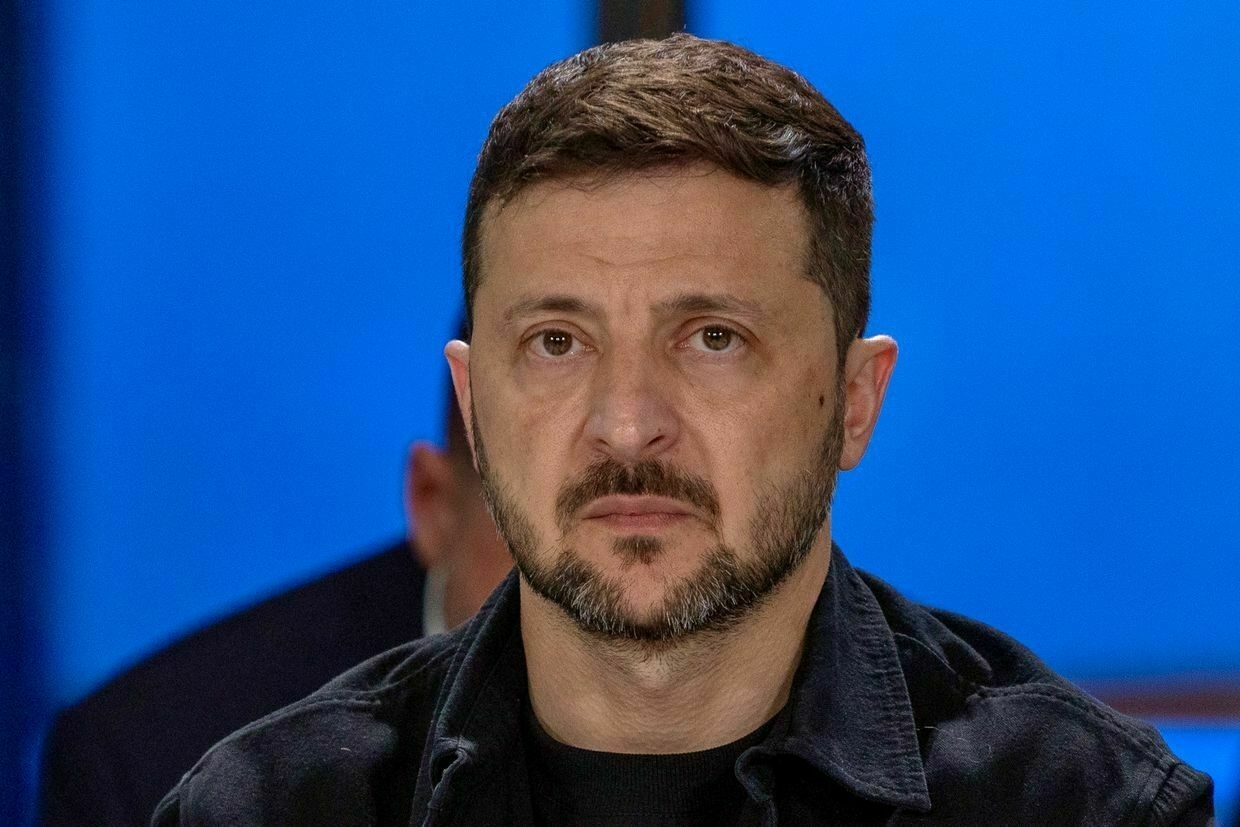
President Volodymyr Zelensky on June 11 called on the European Union to impose tougher sanctions against Russia, arguing that stronger financial pressure is necessary to curb Moscow’s war effort.
Speaking at the Ukraine-Southeast Europe Summit in Odesa, Zelensky said the upcoming 18th EU sanctions package “could be stronger,” especially in targeting Russian oil tankers and the financial sector. He urged the EU to further reduce the price cap on Russian oil exports.
“A ceiling of $45 per barrel of oil is better than $60, that’s clear, that’s true. But real peace will come with a ceiling of $30,” he said. “That’s the level that will really change the mindset in Moscow."
After the 17th package of sanctions against Russia took effect on May 20, Ukraine’s allies announced the following day that another round of restrictions was already in the works.
European Commission President Ursula von der Leyen announced on June 10 that the EU is considering lowering the oil price cap from $60 to $45 per barrel — a measure that will be discussed at the upcoming G7 summit in Canada on June 15–17.
The Kremlin’s budget is increasingly strained by soaring military expenditures, with Russia’s Finance Ministry relying heavily on energy revenues to fund the war against Ukraine.
The push for tighter sanctions comes as Russia continues to reject ceasefire proposals and presses forward with military operations. Zelensky warned that Odesa remains one of Russia’s “main targets,” with plans to push beyond it toward the borders with Romania and Moldova.
“Russia wants to destroy it, as it has done with countless cities and villages in the occupied territories,” he said. “Russian military plans point to this region — Odesa — and then to the border with Moldova and Romania."
Odesa is a major port city in southern Ukraine, located on the northwestern coast of the Black Sea. The president warned of possible destabilization efforts in the broader region, comparing the Kremlin’s strategy to its previous interference in the Balkans.
“We saw this before in the Balkans, where Russia intensified interethnic friction, carried out sabotage, and even attempted coups,” Zelensky said.
The Odesa summit was attended by several southeastern European leaders, including Serbian President Aleksandar Vucic and Romania’s newly elected President Nicusor Dan.
Vucic’s trip marked his first official visit to Ukraine since the start of Russia’s full-scale invasion.
Ukrainian drones strike targets in Russia, including gunpowder plant, General Staff saysThe Tambov Gunpowder Plant, one of Russia’s main manufacturers of gunpowder and explosives for small arms, artillery, and rocket systems, reportedly caught fire following the drone strike.The Kyiv IndependentTim Zadorozhnyy
